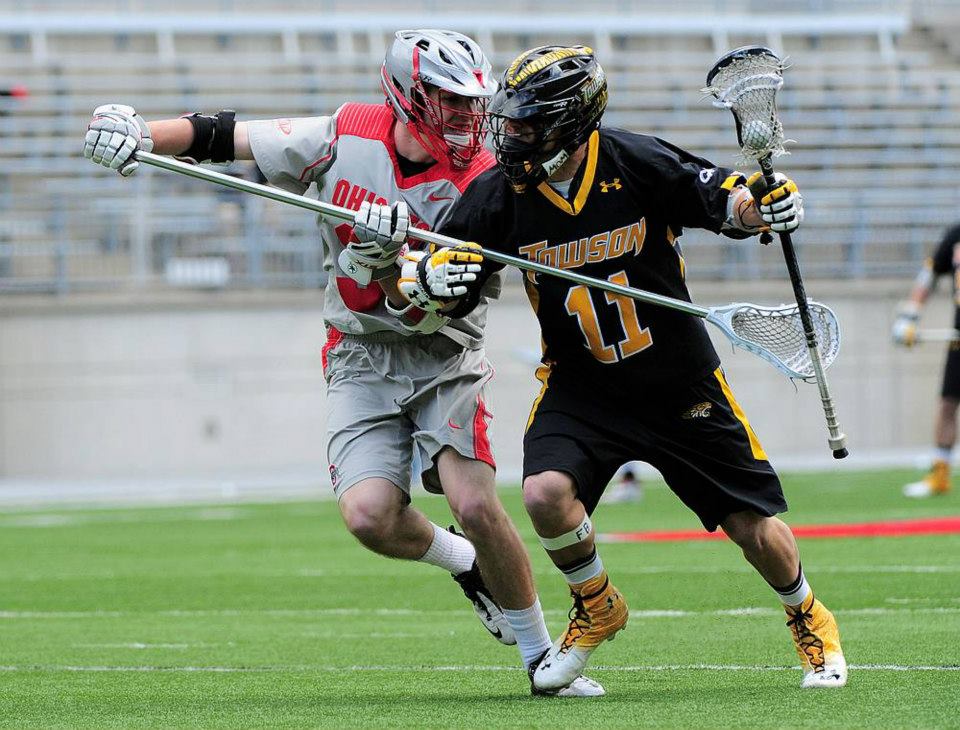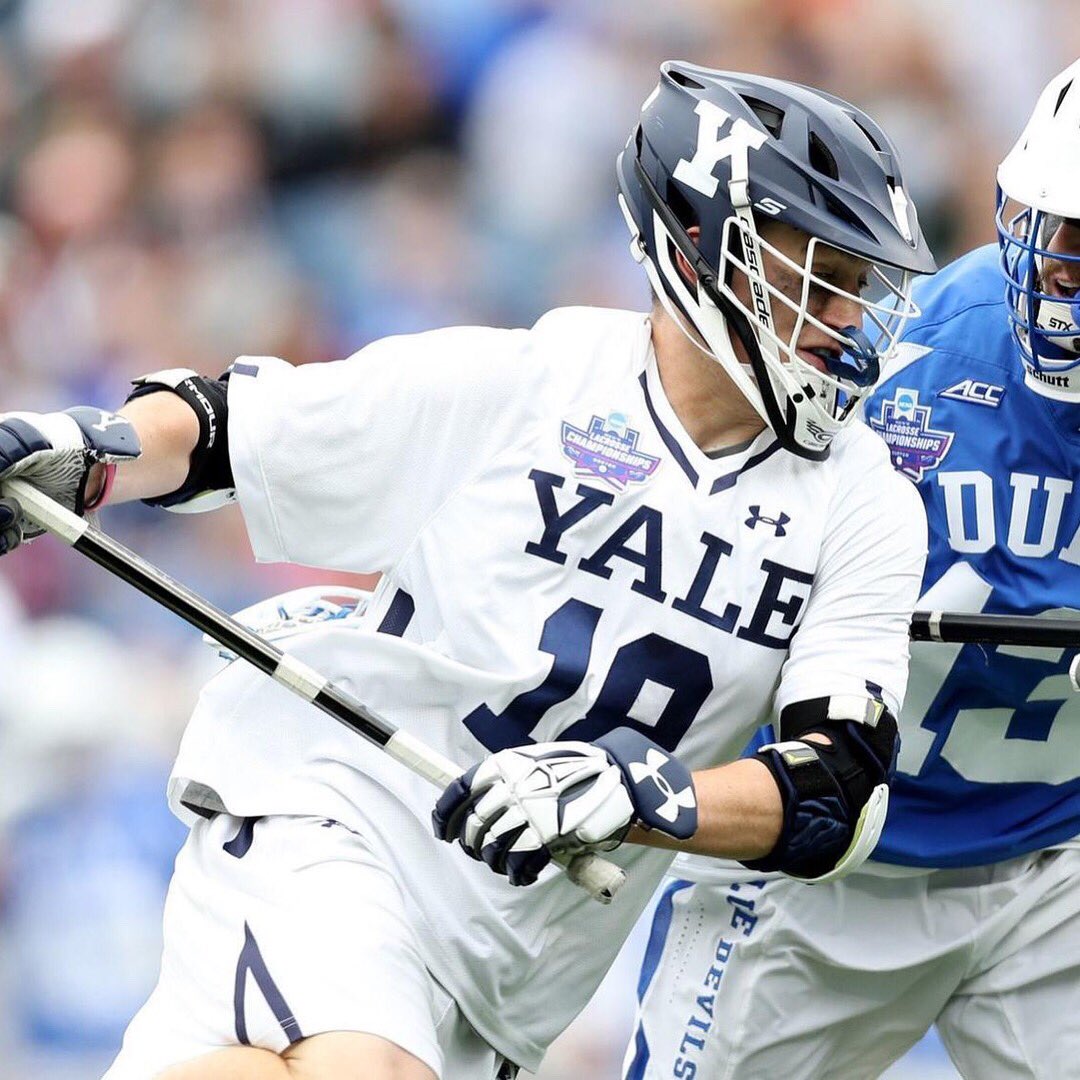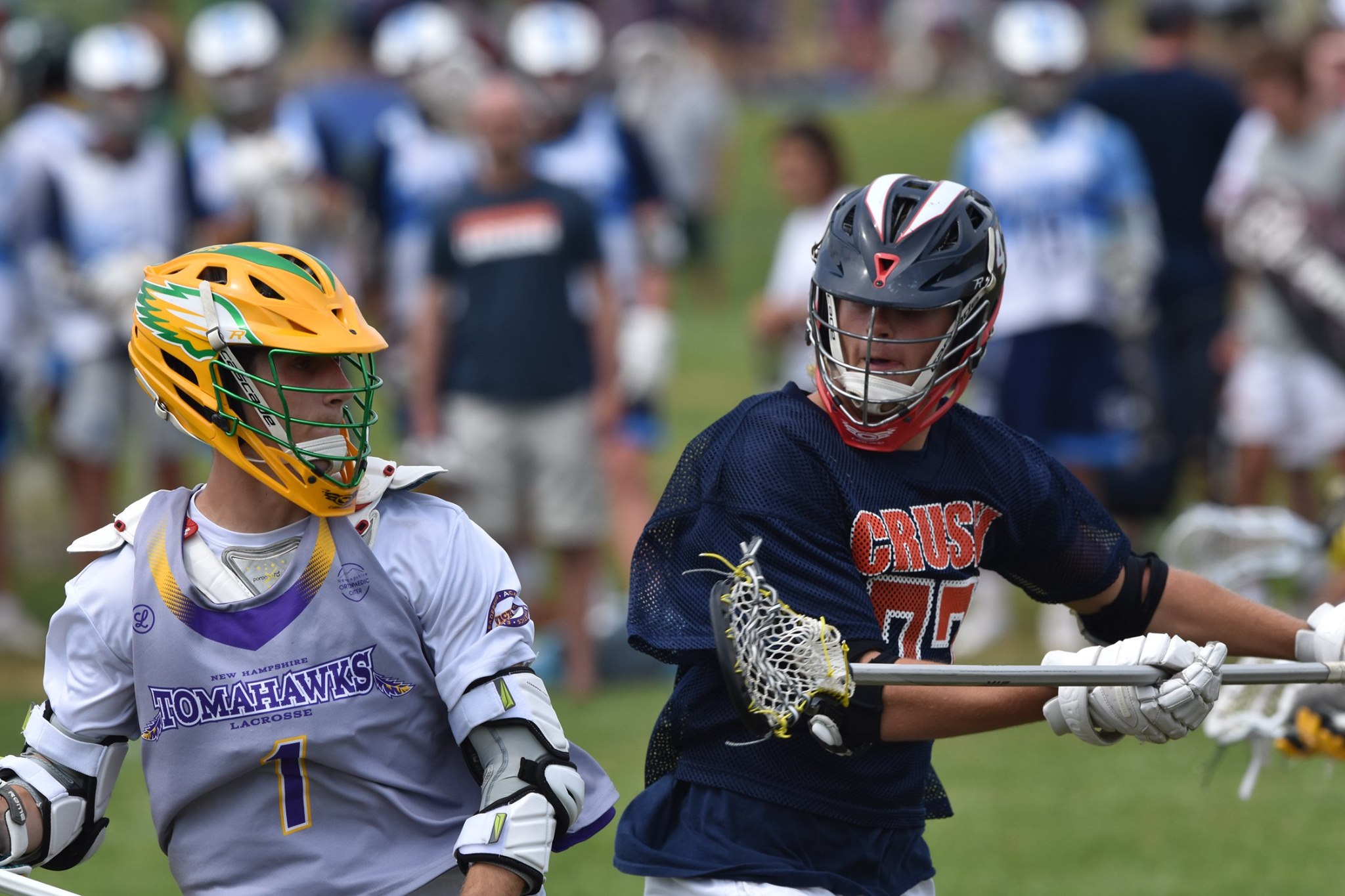How does LaxCon 2021 adapt to the virtual landscape. What benefits does the new format offer lacrosse enthusiasts. How can attendees maximize their experience at this reimagined event.
The Evolution of LaxCon: From Physical to Virtual
The US Lacrosse Convention, known as LaxCon, has long been the premier event for lacrosse professionals and enthusiasts. In 2021, the convention took a bold step into the digital realm, transforming its traditional format into an immersive virtual experience. This shift was not merely a response to global circumstances but an opportunity to reimagine the way the lacrosse community connects and learns.
The virtual LaxCon 2021 was designed around three core principles: Represent, Reimagine, and Reignite. These themes encapsulated the event’s goals of bringing together diverse lacrosse communities, innovating the sport’s practices, and rekindling passion for the game among participants.
Key Features of Virtual LaxCon 2021
- All-virtual event held on January 15-16, 2021
- Immersive digital platform replacing physical convention center
- Accessible to a wider audience regardless of location
- Reduced registration costs compared to in-person events
- Extended access to content for one full year post-event
Registration Benefits and Exclusive Offers
LaxCon 2021 offered an array of benefits to attendees, making the virtual experience both valuable and accessible. US Lacrosse members, in particular, were presented with significant advantages in terms of pricing and additional perks.
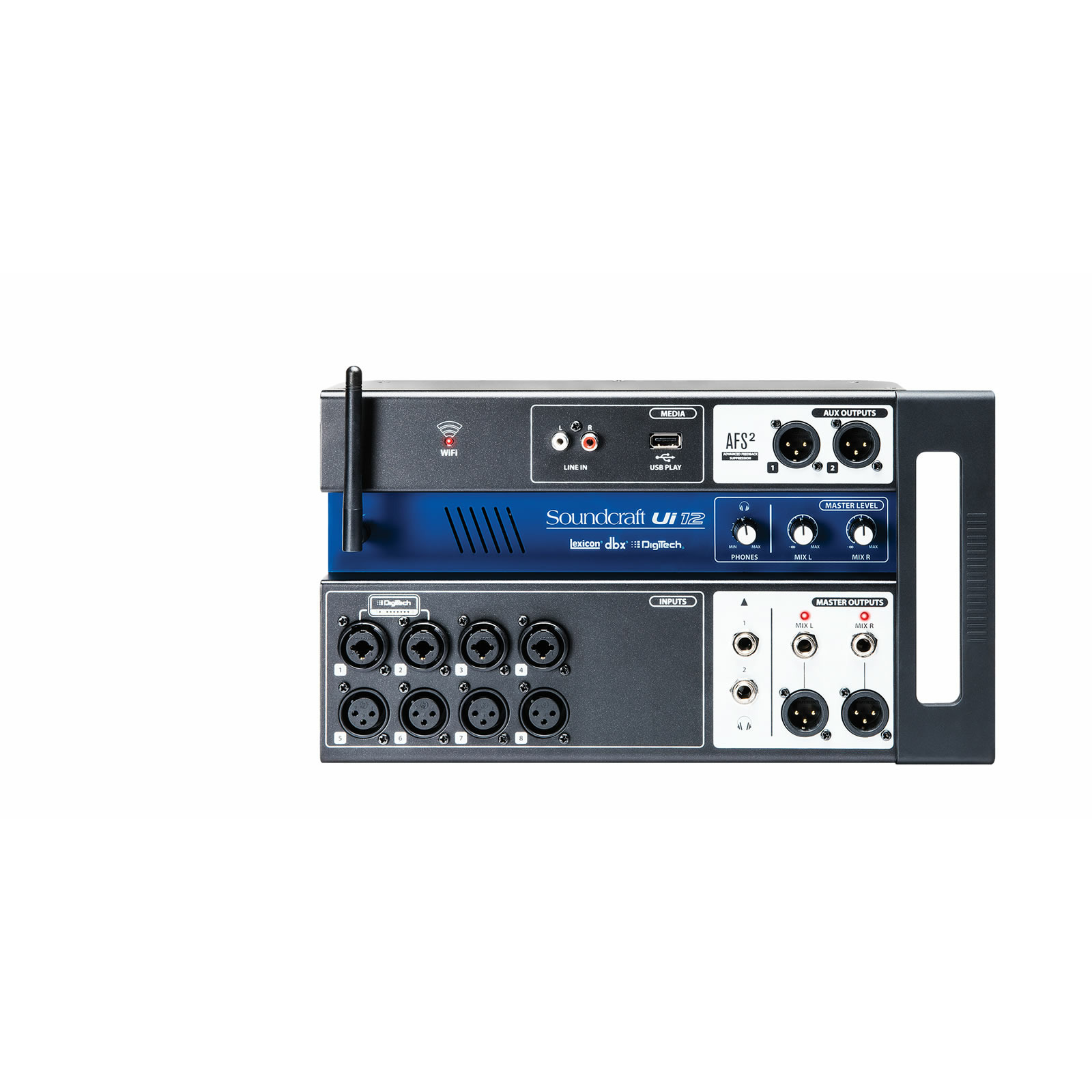
Registration Highlights for US Lacrosse Members
- $45 registration fee (40% savings over non-member price)
- Early bird offer: $20 discount for LaxCon 2022 in Baltimore
- 50% discount on official 2021 LaxCon T-shirt with free shipping
- Group discounts for five or more members registering together
Why did LaxCon 2021 offer such competitive pricing? The virtual format allowed for reduced overhead costs, enabling organizers to pass these savings on to attendees. This strategy aimed to increase accessibility and encourage widespread participation across the lacrosse community.
Comprehensive Access to Lacrosse Expertise
LaxCon 2021 promised a rich lineup of speakers, including some of the most respected names in lacrosse. The event’s curriculum was carefully crafted to cater to coaches, officials, and program leaders, offering a diverse range of sessions and workshops.
What Did Registration Include?
- Access to all virtual sessions
- On-demand content availability for one year
- Entry to the virtual exhibitor hall
- A virtual event bag with exclusive deals
- Networking opportunities with fellow attendees
How did the virtual format enhance the learning experience? By providing on-demand access to sessions for a full year, LaxCon 2021 allowed participants to revisit content at their convenience, maximizing the educational value of the event.

Innovative Learning Opportunities
LaxCon 2021 introduced novel ways to engage with lacrosse education, blending traditional conference elements with cutting-edge virtual experiences. One standout offering was the opportunity to bundle convention registration with additional professional development programs.
US Lacrosse Coach Development Program Integration
For an additional $15, attendees could participate in a Level 1 Virtual Workshop as part of the US Lacrosse Coach Development Program. These two-hour sessions focused on:
- Building and implementing athlete-centered coaching philosophies
- Best practices for teaching lacrosse skills
- Optimizing athlete development through effective coaching techniques
This integration of specialized workshops with the main convention programming demonstrated LaxCon’s commitment to comprehensive professional growth within the lacrosse community.
Expanding Reach: FanFest and Player Clinics
Recognizing the diverse interests within the lacrosse community, LaxCon 2021 expanded its offerings beyond professional development. The introduction of a virtual FanFest opened up new avenues for engagement, catering to a broader audience of lacrosse enthusiasts.
![]()
FanFest Features
- Access to select convention sessions
- Entry to the virtual exhibitor hall
- Exclusive virtual event bag with special deals
- Opportunity to sign up for virtual player clinics
The virtual player clinics, featuring men’s and women’s Team USA players, offered a unique opportunity for fans to learn from elite athletes. How did these clinics bridge the gap between professional players and lacrosse enthusiasts? By leveraging virtual technology, LaxCon 2021 created unprecedented access to top-tier talent, fostering inspiration and skill development across all levels of play.
Speaker Highlights and Session Diversity
LaxCon 2021 boasted an impressive roster of speakers, each bringing unique insights and expertise to the virtual stage. The convention’s schedule reflected a commitment to addressing various aspects of lacrosse, from technical skills to leadership and personal development.
Notable Speakers and Topics
- Dan Quinn on “Creating and Sustaining a Championship Culture”
- Tony Moreno discussing “Building the Young Lacrosse Athlete”
- Mariana Folco and Caitlin Barrett exploring “Foundations of Trauma-Sensitive Coaching”
- John Tillman delving into topics “Beyond the X’s and O’s”
- Jon Gordon delivering a keynote on “The Power of Positive Leadership”
This diverse lineup ensured that attendees could gain insights applicable not only to on-field strategies but also to personal growth and program development. How did the virtual format enhance the diversity of speakers and topics? By removing geographical constraints, LaxCon 2021 was able to feature a broader range of experts, enriching the overall learning experience.

Technological Innovation in Lacrosse Education
The shift to a virtual platform for LaxCon 2021 represented more than just a change in venue; it marked a significant leap in how lacrosse education and community engagement could be delivered. This technological innovation opened up new possibilities for interactive learning and networking within the sport.
Advantages of the Virtual Format
- Enhanced accessibility for attendees from diverse geographical locations
- Flexibility in session attendance and content consumption
- Reduced environmental impact compared to traditional conventions
- Opportunity for real-time engagement through digital tools
- Seamless integration of multimedia content into presentations
How did the virtual platform change the dynamics of networking at LaxCon? While face-to-face interactions were not possible, the digital environment facilitated connections through chat features, virtual meetups, and interactive sessions. This new approach to networking expanded opportunities for collaboration and idea-sharing across the lacrosse community.

The Future of Lacrosse Conventions
LaxCon 2021’s virtual format set a new precedent for lacrosse conventions, blending tradition with innovation. As the sport continues to evolve, future events may adopt a hybrid model, combining the best aspects of virtual and in-person experiences.
Potential Long-term Impacts
- Increased global participation in lacrosse education and development
- Enhanced accessibility to high-quality coaching and officiating resources
- More frequent, targeted virtual events throughout the year
- Integration of virtual reality and augmented reality technologies in skill development
- Expanded opportunities for year-round engagement within the lacrosse community
Will virtual elements become a permanent fixture in future lacrosse conventions? The success of LaxCon 2021 suggests that digital components are likely to play a significant role in upcoming events, even as in-person gatherings resume. This hybrid approach could offer the best of both worlds, combining the energy of live interactions with the accessibility and flexibility of virtual participation.

As the lacrosse community reflects on the innovations introduced by LaxCon 2021, it’s clear that the event has set a new standard for professional development and community engagement in the sport. By embracing technology and reimagining traditional convention formats, US Lacrosse has paved the way for a more inclusive, accessible, and dynamic future for lacrosse education and networking.
The themes of Represent, Reimagine, and Reignite resonated throughout LaxCon 2021, challenging participants to think creatively about their roles in the sport and inspiring new approaches to coaching, officiating, and program management. As the lacrosse world continues to evolve, events like LaxCon will play a crucial role in shaping the sport’s future, fostering innovation, and uniting diverse communities under the shared passion for lacrosse.
Registration Opens for LaxCon 2021
Represent your community. Reimagine the way we play. Reignite your love of lacrosse.
Registration for the 2021 US Lacrosse Convention, an all virtual event Jan. 15-16, opens today with special offers for US Lacrosse members. Annually the sport’s biggest trade show and professional development opportunity, US Lacrosse has converted the physical halls and walls of the convention center into an immersive digital platform to bring the excitement of the sport’s annual kickoff to people from all walks of the lacrosse world.
The cost of registration for LaxCon for US Lacrosse members is just $45 (a 40 percent savings over the non-member price) and members who sign up by Nov. 30, will receive a $20 discount for the 2022 US Lacrosse Convention in Baltimore plus a 50 percent discount on the official 2021 LaxCon T-shirt (with free shipping).
The registration fee for LaxCon 2021 includes the following benefits:
- Access to ALL virtual sessions
- On-demand access for one full year
- Access to the virtual exhibitor hall
- A virtual event bag with exclusive deals
- Ability to network with other attendees
The lineup of speakers for LaxCon, including some of the biggest and most respected names in the sport, will be released in the coming weeks. The curriculum is aimed at coaches, officials and program leaders.
Groups of five or more individuals (must all be US Lacrosse members) can register together for an additional $10 per person discount.
This year, we’re going VIRTUAL. #LaxCon2021 registration is now open: https://t.co/55pSIsx9mu
your community
the way we play
your love of lacrosseREAD MORE: https://t.co/JlGTGZKrVH pic.twitter.com/ZzHDuj7NvM
— US Lacrosse (@USLacrosse) November 5, 2020
Attendees can also bundle their LaxCon registration with a US Lacrosse Coach Development Program Level 1 Virtual Workshop for an additional $15 (note that this cannot be combined with the group registration discount).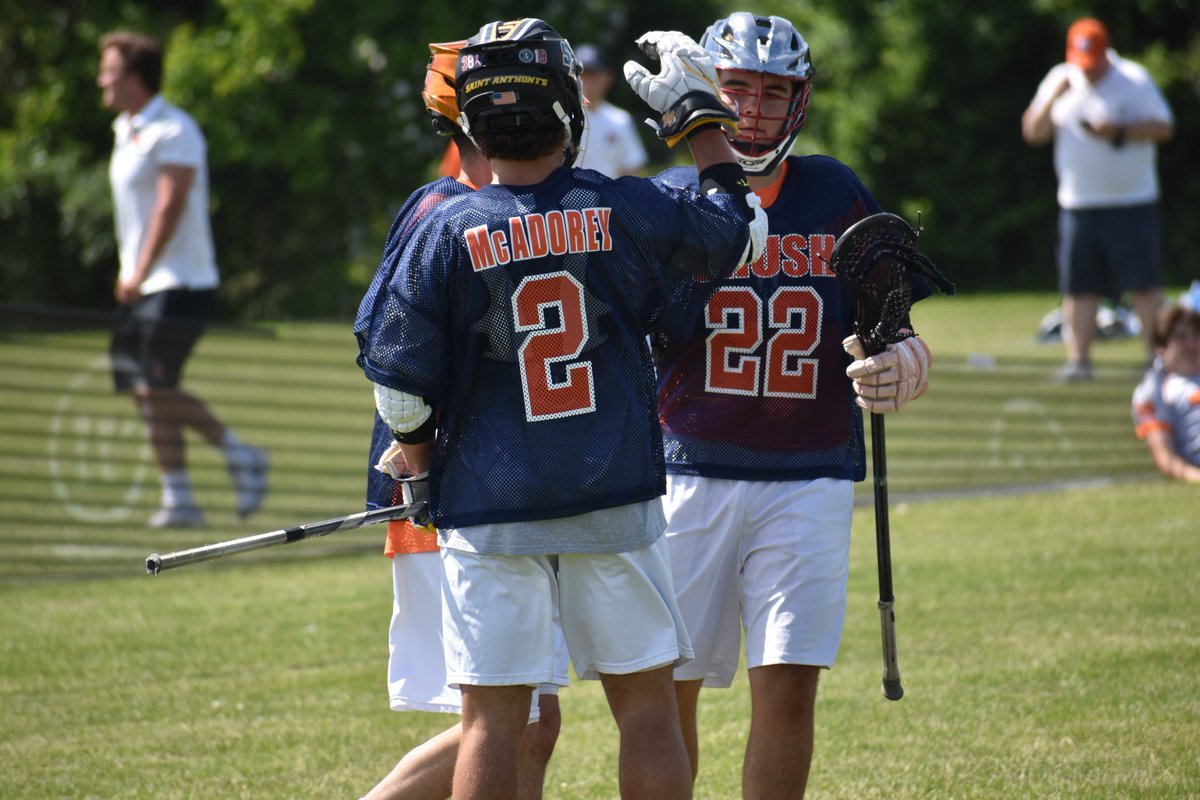 These two-hour athlete-centered coaching workshops fill the US Lacrosse Coach Certification Program requirements and focus on building and implementing and athlete-centered coaching philosophy. The session will cover best practices for teaching lacrosse skills in a manner that optimizes athlete development.
These two-hour athlete-centered coaching workshops fill the US Lacrosse Coach Certification Program requirements and focus on building and implementing and athlete-centered coaching philosophy. The session will cover best practices for teaching lacrosse skills in a manner that optimizes athlete development.
Registration for the virtual FanFest is coming in December. FanFest will include access to select sessions, access the virtual exhibitor hall and a virtual event bag with exclusive deals. FanFest attendees will also have the opportunity to sign up for virtual player clinics with men’s and women’s Team USA players.
For more information about LaxCon 2021, please visit laxcon.uslacrosse.org
| Fri | 3:30 PM | 4:30 PM | 307-308 | Dan Quinn, The Program | Creating and Sustaining a Championship Culture |
| Fri | 3:30 PM | 4:30 PM | 324-326 | Tony Moreno, Eastern Michigan | Building the Young Lacrosse Athlete: Concepts, Considerations, and Combines |
| Fri | 3:30 PM | 4:30 PM | Ballroom III | Justin Axel & Knute Krause, Salisbury (Jim Berkman can’t attend – illness) | Practice Tips and Ideas |
| Fri | 3:30 PM | 4:30 PM | Ballroom IV | Mariana Folco (Up2Us Sports), Caitlin Barrett (SquashBusters) | Foundations of Trauma-Sensitive Coaching |
| Fri | 3:30 PM | 4:30 PM | SI Play Demo Field | Ted Glynn, Goalie Solutions (Tom Madine) | What is Your Goalie Thinking? |
| Fri | 4:45 PM | 5:45 PM | 307-308 | Thomas Mariano, Pace & Florida Launch (Rob Cornetta) | Lacrosse IQ: Developing and Improving Through Practice |
| Fri | 4:45 PM | 5:45 PM | 324-326 | Garrett Hanrahan, Florida | Win With Less: X’s, O’s, and Ideas for Resource-Limited Programs |
| Fri | 4:45 PM | 5:45 PM | Ballroom III | Matt Kerwick, IMG (Fla.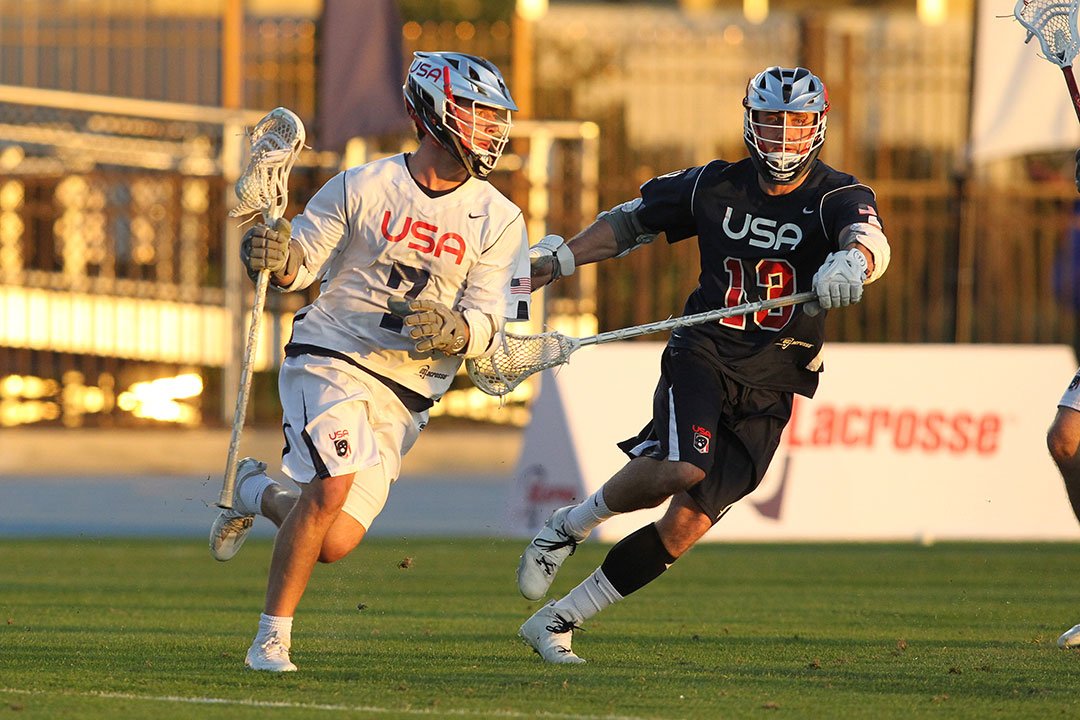 ) Academy ) Academy | Team Offense: Sets, Plays, and Drills to Develop Your Team |
| Fri | 4:45 PM | 5:45 PM | Box Demo Area | Johnny Mouradian, American Indoor Lacrosse Academy | 4-on-4 Box Lacrosse Training Principles and Drills |
| Fri | 4:45 PM | 5:45 PM | STX Live Field | Kyle Hartzell, Team USA & The Defensive Academy (Tucker Durkin) | Defensive Positioning, Fundamentals and Drills |
| Fri | 6:00 PM | 7:00 PM | Ballroom III | John Tillman, Maryland | Beyond the X’s and O’s |
| Sat | 7:30 AM | 9:00 AM | Ballrooms I & II | Jon Gordon, The Jon Gordon Companies | Keynote: The Power of Positive Leadership |
| Sat | 9:30 AM | 10:30 AM | 307-308 | Chris Perzinski, Elizabethtown | Pre-Practice Drills: What Do I Do with My Defenseman? (Round 2) |
| Sat | 9:30 AM | 10:30 AM | 324-326 | Dick Massimilian, US Lacrosse North Texas Chapter | How to Lead an Effective Meeting and Get the Results You Want |
| Sat | 9:30 AM | 10:30 AM | 331-332 | Leslee Brady, Positive Coaching Alliance | Developing the Triple Impact Competitor |
| Sat | 9:30 AM | 10:30 AM | 337-338 | Troy Kemp, National Center for the Development of Boys | The Art and Science of Creating Champions on and off the Field |
| Sat | 9:30 AM | 10:30 AM | Ballroom III | Jim Stagnitta, Complete Athlete 360 (JC Glick) | Coaching vs.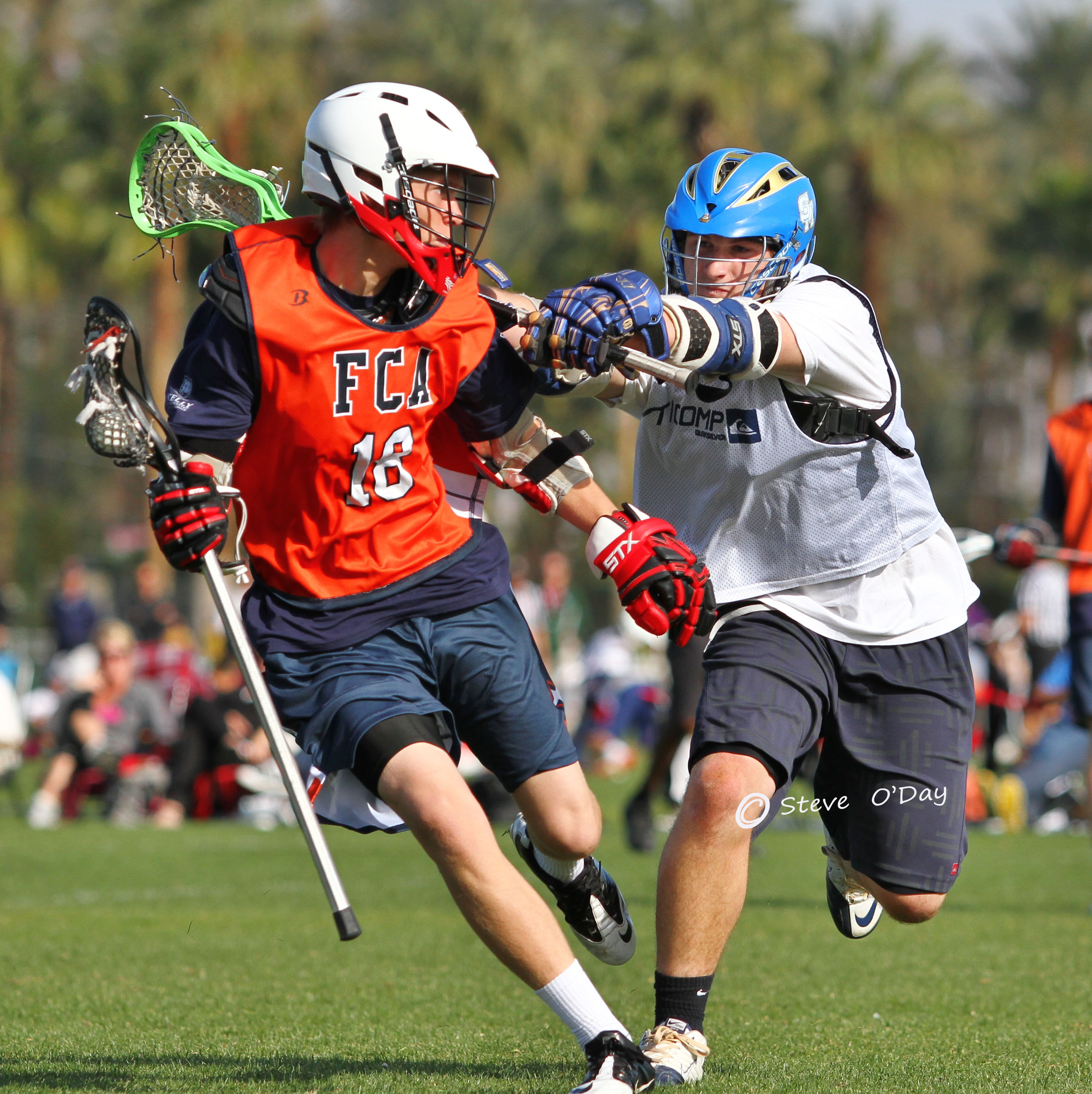 Leading: Finding the Balance Leading: Finding the Balance |
| Sat | 9:30 AM | 10:30 AM | Goalie Cage | Jay Dyer, Team USA, Johns Hopkins & Medstar | Developing Speed and Power in the Lacrosse Athlete |
| Sat | 9:30 AM | 10:30 AM | STX Live Field | Greg Gurenlian, Team USA & The Faceoff Academy (Jerry Ragonese, Brendan Fowler) | The FaceOff Academy |
| Sat | 10:45 AM | 11:45 AM | Ballroom III | John Danowski, Team USA & Duke | Now More Than Ever: The Importance of Practice |
| Sat | 10:45 AM | 11:45 AM | STX Live Field | Scotty Rodgers, Ohio Machine | Scotty Rodgers Goalie Training |
| Sat | 10:45 AM | 11:45 AM | Box Demo Area | Paul Day, NLL (Eddie Comeau) | Box/Indoor Lacrosse: Drills for Development |
| Sat | 11:45 AM | 12:45 AM | 331-332 | Susie Chase, One Love Foundation – Maryland | Relationship Abuse |
| Sat | 11:45 AM | 12:45 PM | Box Demo Area | Regy Thorpe, Team USA & Syracuse | Box Lacrosse Drills |
| Sat | 11:45 AM | 12:45 PM | STX Live Field | Paul Rabil, Team USA & New York Lizards | Paul Rabil’s Three Favorite Shooting Drills |
| Sat | 12:45 PM | 1:45 PM | 307-308 | Ryan Boyle, Trilogy Lacrosse | Extra-Man Offense |
| Sat | 12:45 PM | 1:45 PM | 331-332 | Sean McGinnis, Archbishop Moeller (Ohio) HS | Building a Positive Team Culture That Will Last |
| Sat | 12:45 PM | 1:45 PM | Ballroom III | Sean Quirk, Boston Cannons (Eric Hagarty) | Development of the Entire Goalie |
| Sat | 12:45 PM | 1:45 PM | Box Demo Area | Lisa Christiansen, US Lacrosse | US Lacrosse Physical Education Program |
| Sat | 12:45 PM | 1:45 PM | STX Live Field | Joanna Lignelli, US Lacrosse Athlete Development | Start Small to Play Huge |
| Sat | 2:00 PM | 3:15 PM | 314-317 | Walt Munze, US Lacrosse Rules (David Seidman) | US Lacrosse Youth and NFHS 2018 Rules |
| Sat | 2:00 PM | 3:00 PM | 331-332 | Leslee Brady, Positive Coaching Alliance | PCA Double-Goal Coach 1 |
| Sat | 2:00 PM | 3:00 PM | Ballroom III | Ben DeLuca, Delaware | Practice Planning and Drilla |
| Sat | 2:00 PM | 3:00 PM | SI Play Demo Field | Billy Bitter, Bitter Lacrosse (Ryan Demorest) | Billy Bitter’s Cascade Maverik Gear Demo |
| Sat | 2:00 PM | 3:00 PM | Box Demo Area | Ryan Baker, Wheelchair Lacrosse USA | Wheelchair Lacrosse Demo |
| Sat | 2:00 PM | 3:00 PM | STX Live Field | Mitch Belisle, Trilogy Lacrosse (Matt Striebel) | Making Defense Fun Again |
| Sat | 3:15 PM | 4:15 PM | 307-308 | Sid Jamieson, Iroquois Nationals | The Missing Link |
| Sat | 3:15 PM | 4:15 PM | 314-317 | Sean Murphy (US Lacrosse & NILOA), Dave Pietramala (Johns Hopkins), Don Zimmerman (JMBC ret. ), Michael Hyland (official), Chris Clark (official) ), Michael Hyland (official), Chris Clark (official) | Panel: Coaches and Officials |
| Sat | 3:15 PM | 4:15 PM | Ballroom III | Rob Bordley, Landon (Md.) School (Ian Healy, John Bordley) | Practice Organization, Philosophy, and Drills |
| Sat | 3:15 PM | 4:15 PM | Box Demo Area | Tom Marechek, All Pro Lacrosse/Team 42 (Larry Fila, Rob Persing) | How to Incorporate Box Drills Into Regular Practice |
| Sat | 3:15 PM | 4:15 PM | Goalie Cage | Rob Scherr, Big Stop Goalie School & McDonogh (Md.) School | How to Coach and Maximize Your Goalie with Technique Tips for All |
| Sat | 3:15 PM | 4:15 PM | SI Play Demo Field | Matt Hogan, Annapolis Hawks (Tim Troutner) | Making Your Defense a Team Defense |
| Sat | 4:30 PM | 5:30 PM | Box Demo Area | Bill McGlone, Trilogy Lacrosse | Box Lacrosse Gameplay, Benefits and Drills |
| Sat | 4:30 PM | 5:30 PM | 331-332 | Lloyd Carter, Hampton | Growing The Game.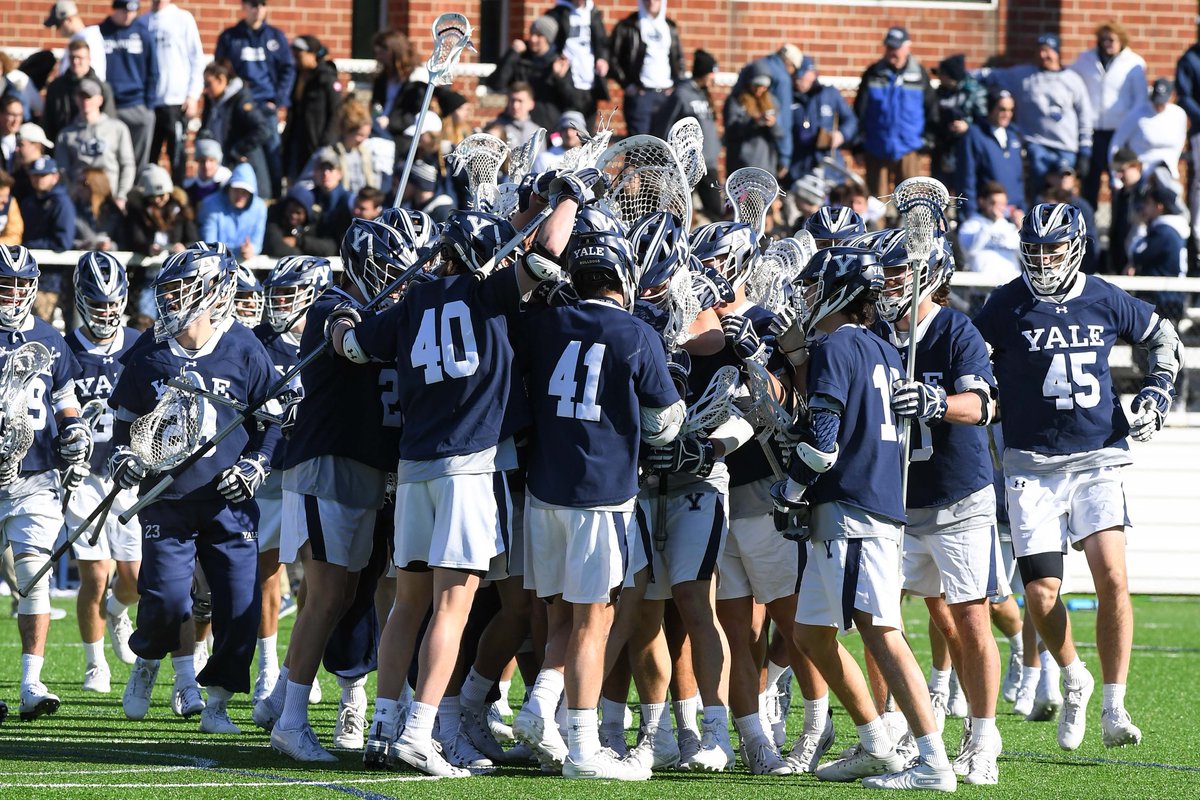 .. For Real! .. For Real! |
| Sat | 4:30 PM | 5:30 PM | Ballroom III | Jim Nagle, Stony Brook | Small Space, Small Numbers = Fun and Skill Development |
| Sun | 8:00 AM | 9:00 AM | 307-308 | Atsen Bulus, Messiah | The Culture Basket |
| Sun | 8:00 AM | 9:00 AM | 321-323 | Maureen Monte, Maureen Monte Consulting | Coaching To Gender Differences: A Case Study in How to Measure It and React |
| Sun | 8:00 AM | 9:00 AM | 327-329 | Matt Nein, Salisbury | Mental Toughness: What is It and How Do We Develop It? |
| Sun | 8:00 AM | 9:00 AM | SI Play Demo Field | Sean Kelly, Sean Kelly’s Performance Center | How to Shoot Perfectly: Improve Technique by Addressing Physical Deficiencies |
| Sun | 9:15 AM | 10:15 AM | 331-332 | Joanna Lignelli, Positive Coaching Alliance | PCA Double-Goal Coach 1 |
| Sun | 9:15 AM | 10:15 AM | SI Play Demo Field | Logan Bobzien, 3d Lacrosse | The Ultimate Learning Environment |
| Sun | 9:15 AM | 10:15 AM | STX Live Field | Tim Puls, Stevenson | Lockdown Defensive Positioning and Techniques |
| Sun | 10:30 AM | 11:30 AM | Box Demo Area | Eric Holt, Lionheart Lacrosse (Justin Otto, Matt Ramsey) | Box Lacrosse Introduction and Skill Translation to Field Lacrosse |
| Sun | 10:30 AM | 11:30 AM | STX Live Field | Brandon Childs, York | Skills That Make for a Productive Practice |
Bills Picked to Present at US Lacrosse Virtual Conference
Story Links
ELMHURST, Ill. – Kali Bills, Elmhurst University’s Head Women’s Lacrosse Coach recently served as a panelist discussing how to “X Out Racism” at the 2021 US Lacrosse Convention.
– Kali Bills, Elmhurst University’s Head Women’s Lacrosse Coach recently served as a panelist discussing how to “X Out Racism” at the 2021 US Lacrosse Convention.
Bills and four other panelists took part in a virtual discussion about how to create a more welcoming culture across the sport of lacrosse. She was approached to join the panel through her work as a clinician with US Lacrosse’s Sankofa Clinic Series.
“The Sankofa Lacrosse Foundation is an organization that teamed up with US Lacrosse to provide free clinics for children ages 8-18 in underrepresented communities,” said Bills. “The clinic series is designed to create a safe and friendly learning environment, removing socioeconomic barriers to entry in lacrosse. The opportunity allows participants to connect with some of the most prominent minority players and coaches in the sport. I feel blessed to work with a diverse group of coaches and players who give their time back to the game, and to these kids who might not have ever had the chance to experience ‘The Creator’s Game.'”
Bills felt that all the panelists shared a central theme.
“I think all the panelists agreed that there is the utmost need for collaborative efforts, education and discussion in bringing about real change, and impactful opportunities for those that play, coach and love the sport,” she said. “Jeremy Ardrey, our moderator said it perfectly: ‘If you want to go somewhere fast, go it alone; if you want to go far, do it together.'”
Bills believes that one of the best ways to bring change to the collegiate level begins in the recruiting process.
“Recruiting is so much more than talent,” said Bills “It’s about character and work ethic. I think breaking down barriers to access for the sport, whether its socioeconomic, location or other roadblocks, is one way to implement change and promote inclusivity and diversity.”
Bills felt honored to be asked to be panelist and jumped at the opportunity to contribute to the conversation.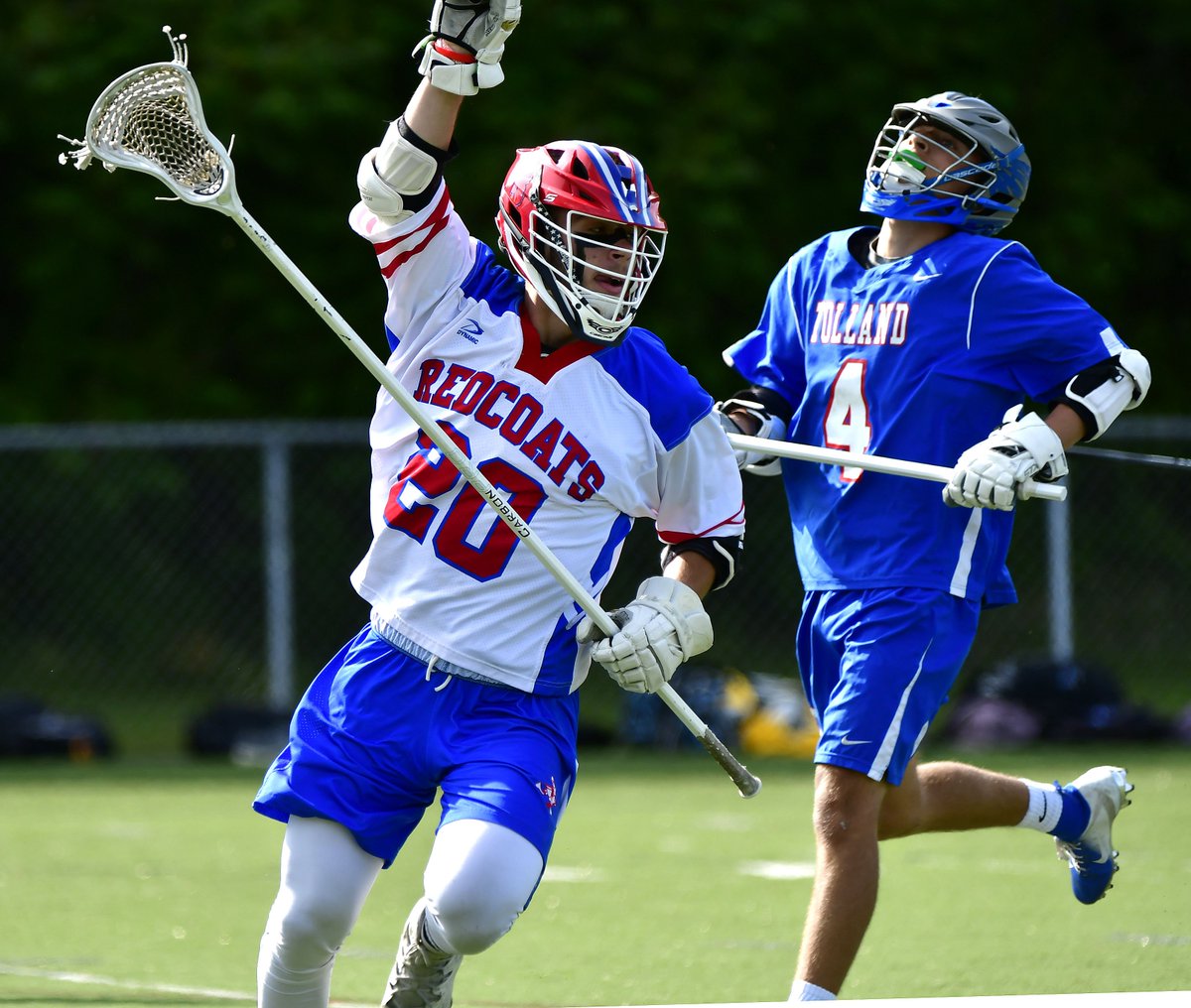
“It was important for me to be a part of the panel to contribute to and continue conversation regarding inclusivity,” she said. “I want to move forward in my mission to inspire others to have open and honest dialogue about matters that severely affect our lacrosse community’s nationwide. Our greater [lacrosse] community has an opportunity to collaborate to bring forward impactful change concerning equality in our sport.”
SportsEngine, Inc. is Official Sponsor of 2020 US Lacrosse ‘LaxCon’ Convention
MINNEAPOLIS, Jan. 10, 2020 /PRNewswire/ — SportsEngine, Inc., an NBC Sports Group company, and the leading provider of sport relationship management software, announced today that it is an official sponsor of the 2020 US Lacrosse ‘LaxCon’ Convention, taking place this weekend, January 9-12, in Philadelphia, Pennsylvania.
The US Lacrosse Convention is regarded as one of the top professional development conferences for the sport of lacrosse. The convention annually brings together approximately 7,000 coaches, officials administrators and fans from the lacrosse community for the three-day event. SportsEngine has served as an official sponsor for the past two years.
National Center for Safety Initiatives (NCSI), the leader in youth-centered background screening solutions and a wholly-owned subsidiary of SportsEngine, Inc., serves as the exclusive provider of background screening services for US Lacrosse. Background screening expert and NCSI founder, Trish Sylvia, will be presenting a seminar called “Relentless Pursuit of Safety: Prevention Strategies that Make a Difference” that provides insight into US Lacrosse’s national background screening program and prevention strategies to help keep athletes safe.
“We are proud to partner with US Lacrosse at the 2020 ‘LaxCon’ Convention,” stated Trish Sylvia, NCSI Founder. “Helping to ensure athlete safety is core to our mission and we applaud US Lacrosse and their commitment to ongoing education as part of their effort to help keep kids safe. ”
”
The US Lacrosse Convention is held at the Philadelphia Convention Center from January 9 to January 12. You can find SportsEngine at booth #216.
About SportsEngine, Inc.
Helping the world play smarter and live more, SportsEngine, Inc., an NBC Sports Group company, is the leading provider of sport relationship management software serving millions of coaches, parents, athletes, clubs, leagues, governing bodies, and associations through its software platforms, SportsEngine HQ and SportsSignUp Play. The software helps sports organizations around the globe reduce the time they spend on administrative tasks, and enables them to focus more on developing their athletes, providing safe experiences, and furthering the love of sport. As part of its commitment to get more kids in sports, SportsEngine runs the nation’s largest youth sports hub and search directory at SportsEngine.com to make it easier for parents to learn about and register their children for sports programs in their area. Leagues and governing bodies across the country use National Center for Safety Initiatives (NCSI), a SportsEngine, Inc. wholly-owned subsidiary, to manage their background checks and safety programs. Learn more at: www.sportsengine.com, Facebook.com/sportsengine; or twitter.com/@sportsengine.
SOURCE SportsEngine, Inc.
Related Links
https://www.sportsengine.com
Fink to Present at U.S. Lacrosse Convention for 11th Time
WEST HARTFORD, Conn. — University of Saint Joseph (USJ) head men’s lacrosse coach Andrew Fink has been selected as a presenter at the upcoming 2021 U.S. Lacrosse Convention and Fan Fest (LaxCon). LaxCon is lacrosse’s largest trade show and professional development convention, which this year, will be held virtually over the course of two days from January 15-16.
Coach Fink will be presenting “Adjacent Man to Man Defense with Lock Offs” at this year’s convention. It marks the 11th time that Fink has presented at LaxCon in his career. The presentation will be on day two of the event: Saturday, January 16, at 2:30 p.m.
It marks the 11th time that Fink has presented at LaxCon in his career. The presentation will be on day two of the event: Saturday, January 16, at 2:30 p.m.
Fink is the first-ever head men’s lacrosse coach in USJ history. He led the Blue Jays to a 2-2 record in their inaugural season last year before competition was halted due to COVID-19. Fink joined the Blue Jays in 2018 after spending 16 years at Mount Ida College (15 as head coach) and he carries numerous accolades as a player and a coach onto the USJ Lacrosse Field.
The U.S. Lacrosse Convention has been operating for nearly two decades and represents the best professional development conference in lacrosse. With nearly half a million members nationwide, their goal is to provide national leadership, structure, and resources to fuel the sport’s growth and enrich player experience.
About USJ Athletics
University of Saint Joseph (USJ) Athletics is a NCAA Division III member of the Great Northeast Athletic Conference (GNAC). The Blue Jays field 15 varsity sports with 200-plus student-athletes. For more information, please visit www.usjbluejays.com.
Follow USJ Athletics
For the latest on University of Saint Joseph athletics, follow the Blue Jays on social media on Facebook, Instagram, Twitter, and YouTube.
Fans can also download the USJ Front Row Mobile App and subscribe to our Newsletter and Text Alerts. #FearTheFlock #GoBlueJays
SportsEngine, Inc. is Official Sponsor of 2020 US Lacrosse ‘LaxCon’ Convention
Press release content from PR Newswire. The AP news staff was not involved in its creation.
https://apnews.com/press-release/PR%2520Newswire/259f0337c3cbcec3ac6b5e0dc455523b
Click to copy
MINNEAPOLIS, Jan. 10, 2020 /PRNewswire/ — SportsEngine, Inc., an NBC Sports Group company, and the leading provider of sport relationship management software, announced today that it is an official sponsor of the 2020 US Lacrosse ‘LaxCon’ Convention, taking place this weekend, January 9-12, in Philadelphia, Pennsylvania.
The US Lacrosse Convention is regarded as one of the top professional development conferences for the sport of lacrosse. The convention annually brings together approximately 7,000 coaches, officials administrators and fans from the lacrosse community for the three-day event. SportsEngine has served as an official sponsor for the past two years.
National Center for Safety Initiatives (NCSI), the leader in youth-centered background screening solutions and a wholly-owned subsidiary of SportsEngine, Inc., serves as the exclusive provider of background screening services for US Lacrosse. Background screening expert and NCSI founder, Trish Sylvia, will be presenting a seminar called “Relentless Pursuit of Safety: Prevention Strategies that Make a Difference” that provides insight into US Lacrosse’s national background screening program and prevention strategies to help keep athletes safe.
“We are proud to partner with US Lacrosse at the 2020 ‘LaxCon’ Convention,” stated Trish Sylvia, NCSI Founder. “Helping to ensure athlete safety is core to our mission and we applaud US Lacrosse and their commitment to ongoing education as part of their effort to help keep kids safe.”
The US Lacrosse Convention is held at the Philadelphia Convention Center from January 9 to January 12. You can find SportsEngine at booth #216.
About SportsEngine, Inc.
Helping the world play smarter and live more, SportsEngine, Inc., an NBC Sports Group company, is the leading provider of sport relationship management software serving millions of coaches, parents, athletes, clubs, leagues, governing bodies, and associations through its software platforms, SportsEngine HQ and SportsSignUp Play. The software helps sports organizations around the globe reduce the time they spend on administrative tasks, and enables them to focus more on developing their athletes, providing safe experiences, and furthering the love of sport. As part of its commitment to get more kids in sports, SportsEngine runs the nation’s largest youth sports hub and search directory at SportsEngine. com to make it easier for parents to learn about and register their children for sports programs in their area. Leagues and governing bodies across the country use National Center for Safety Initiatives (NCSI), a SportsEngine, Inc. wholly-owned subsidiary, to manage their background checks and safety programs. Learn more at: www.sportsengine.com, Facebook.com/sportsengine; or twitter.com/@sportsengine.
com to make it easier for parents to learn about and register their children for sports programs in their area. Leagues and governing bodies across the country use National Center for Safety Initiatives (NCSI), a SportsEngine, Inc. wholly-owned subsidiary, to manage their background checks and safety programs. Learn more at: www.sportsengine.com, Facebook.com/sportsengine; or twitter.com/@sportsengine.
View original content to download multimedia: http://www.prnewswire.com/news-releases/sportsengine-inc-is-official-sponsor-of-2020-us-lacrosse-laxcon-convention-300984522.html
SOURCE SportsEngine, Inc.
Sharbaugh to Present at US Lacrosse Convention
Story Links
BALTIMORE – Gettysburg College assistant men’s lacrosse coach Dan Sharbaugh will serve as a presenter at the US Lacrosse National Convention, presented by Champion, this weekend.
Sharbaugh will join roughly 200 of the sport’s best coaches and officials as presenters at the largest professional development event in the world for lacrosse coaches, officials and administrators Friday through Sunday in Philadelphia.
Sharbaugh will host “Team Offense: From the Classroom to the Field” for boys’ lacrosse coaches at 4:15 p.m. on Friday on the STX Live Field in the Pennsylvania Convention Center. US Lacrosse coaching education content manager TJ Buchanan will co-host the clinic.
“Dan Sharbaugh has spent much of his career on the defensive side of the ball, so he’ll be able to provide a unique perspective for coaches on how to attack certain defenses,” said Beth Porreca, director of special events at US Lacrosse. “Dan is one of the sport’s top young coaches in the NCAA Division III ranks, and we’re looking forward to having him as a speaker.”
“I’m honored to be selected as a presenter at US Lacrosse National Convention,” Sharbaugh said. “US Lacrosse has a number of programs to develop coaches at all levels, and those programs always come into focus at the convention. Their continued dedication to the growth of the game makes our job as college coaches possible. I’m excited to be a part of it.”
Their continued dedication to the growth of the game makes our job as college coaches possible. I’m excited to be a part of it.”
Sharbaugh will enter his second season with the Bullets in 2014. He helped Gettysburg to the Centennial Conference tournament and coached two All-Americans last season. He previously coached at York (Pa.) College and alma mater Eastern University, where he was a four-year starting defenseman.
The US Lacrosse National Convention has drawn approximately of 7,000 participants in each of the last two years, and it includes four live demonstration areas, 150 educational sessions, business meetings for leadership groups within the sport and the Major League Lacrosse Collegiate Draft.
The convention also includes the US Lacrosse Fan Fest, presented by TeamZila, which opens the convention center to the public on Saturday from 11 a.m. to 5 p.m.
Release courtesy of US Lacrosse
90,000 Convention on the Rights of Persons with Disabilities – Conventions and Agreements – Declarations, Conventions, Agreements and Other Legal Materials
Convention on the Rights of Persons with Disabilities
Adopted by General Assembly Resolution 61/106 of 13 December 2006
Preamble
States Parties to this Convention,
a ) Recalling of the principles proclaimed in the Charter of the United Nations, in which the inherent dignity and value of all members of the human family and their equal and inalienable rights are recognized as the basis of freedom, justice and universal peace,
b ) Recognizing that the United Nations has proclaimed and enshrined in the Universal Declaration of Human Rights and the International Covenants on Human Rights that everyone has all the rights and freedoms provided for therein without distinction of any kind,
c ) Reaffirming the universality, indivisibility, interdependence and interrelatedness of all human rights and fundamental freedoms, as well as the need to ensure that persons with disabilities enjoy their full enjoyment without discrimination,
d ) Recalling the International Covenant on Economic, Social and Cultural Rights, the International Covenant on Civil and Political Rights, the International Convention on the Elimination of All Forms of Racial Discrimination, the Convention on the Elimination of All Forms of Discrimination against Women, the Convention against Torture and Other Cruel, Inhuman or Degrading Treatment or Punishment, Convention on the Rights of the Child and International Convention on the Protection of the Rights of All Migrant Workers and Members of Their Families,
e ) Recognizing that disability is an evolving concept and that disability is the result of interactions that occur between people with disabilities and attitudinal and environmental barriers that prevent them from participating fully and effectively in society on an equal basis with others,
f ) Recognizing the importance that the principles and guidelines contained in the World Program of Action for Persons with Disabilities and the Standard Rules on the Equalization of Opportunities for Persons with Disabilities have in terms of influencing the promotion, formulation and evaluation of strategies, plans, programs and activities at the national, regional and international levels to further ensure equal opportunities for persons with disabilities,
g ) Stressing the importance of mainstreaming disability issues as part of appropriate sustainable development strategies,
h ) Recognizing also that discrimination against any person on the basis of disability constitutes an infringement of the inherent dignity and worth of the human person,
i ) further recognizing the diversity of persons with disabilities,
j ) Recognizing the need to promote and protect the human rights of all persons with disabilities, including those in need of increased support,
k ) Concerned that, despite these various instruments and initiatives, persons with disabilities continue to face barriers to their participation in society as equal members and violations of their human rights in all parts of the world,
l ) Recognizing the importance of international cooperation to improve the living conditions of persons with disabilities in every country, especially in developing countries,
m ) Recognizing the valuable current and potential contributions of persons with disabilities to the overall well-being and diversity of their communities, and the fact that promoting the full enjoyment of their human rights and fundamental freedoms by persons with disabilities, and the full participation of persons with disabilities will enhance their sense of belonging and make significant progress in the human, social and economic development of society and the eradication of poverty,
n ) Recognizing that personal autonomy and independence, including the freedom to make their own choices, is important for people with disabilities,
o ) Considering that persons with disabilities should be able to be actively involved in decision-making processes regarding strategies and programs, including those that directly concern them,
p ) Concerned about the difficult conditions faced by persons with disabilities who are subjected to multiple or aggravated forms of discrimination on the basis of race, color, sex, language, religion, political or other opinion, national, ethnic, aboriginal or social origin, property status, birth, age or other circumstance,
q ) Recognizing that women and girls with disabilities, both at home and outside, are often at greater risk of violence, injury or abuse, neglect or neglect, abuse or exploitation,
r ) Recognizing that children with disabilities should fully enjoy all human rights and fundamental freedoms on an equal basis with other children, and recalling in this regard the obligations undertaken by States parties to the Convention on the Rights of the Child,
s ) Stressing the need to integrate a gender perspective in all efforts to promote the full enjoyment of human rights and fundamental freedoms by persons with disabilities,
t ) Emphasizing that most people with disabilities live in poverty, and recognizing in this regard the urgent need to address the negative impact of poverty on persons with disabilities,
u ) Considering that an environment of peace and security based on full respect for the purposes and principles set out in the Charter of the United Nations and on the observance of applicable human rights treaties is a sine qua non for the full protection of persons with disabilities, in particular during armed conflicts and foreign occupation,
v ) Recognizing that accessibility of the physical, social, economic and cultural environment, health and education, as well as information and communication is important, as it enables persons with disabilities to fully enjoy all human rights and fundamental freedoms,
w ) Bearing in mind that each individual, having responsibilities towards others and the community to which he belongs, must seek the promotion and observance of the rights recognized in the International Bill of Human Rights,
x ) Convinced by that the family is the natural and fundamental unit of society and has the right to be protected by society and the state, and that persons with disabilities and their family members should receive the necessary protection and assistance to enable families to contribute to the cause full and equal enjoyment of the rights of persons with disabilities,
y ) Convinced by that a comprehensive and uniform international convention to promote and protect the rights and dignity of persons with disabilities will make an important contribution to overcoming the deeply disadvantaged social situation of persons with disabilities and to expanding their participation in civil, political, economic, social and cultural life with equal opportunities – in both developed and developing countries,
Have agreed as follows:
Article 1
Target
The purpose of this Convention is to promote, protect and ensure the full and equal enjoyment of all human rights and fundamental freedoms by all persons with disabilities, and to promote respect for their inherent dignity.
Persons with disabilities are persons with persistent physical, mental, intellectual or sensory impairments that, when interacting with various barriers, may interfere with their full and effective participation in society on an equal basis with others.
Article 2
Definitions
For the purposes of this Convention:
“communication” includes the use of languages, texts, Braille, tactile communication, large print, accessible multimedia, as well as printed materials, audio tools, common language, readers, as well as augmentative and alternative methods, methods and formats of communication, including accessible information -communication technology;
“language” includes speech and sign languages and other forms of non-speech languages;
“discrimination on the basis of disability” means any distinction, exclusion or limitation on grounds of disability, the purpose or result of which is to diminish or deny the recognition, exercise or exercise, on an equal basis with others, of all human rights and fundamental freedoms in political, economic, social, cultural, civil or any other area.It includes all forms of discrimination, including denial of reasonable accommodation;
“reasonable accommodation” means making, when necessary in a particular case, necessary and appropriate modifications and adjustments that do not become a disproportionate or undue burden, in order to ensure the exercise or exercise by persons with disabilities on an equal basis with others of all human rights and fundamental freedoms;
“Universal design” means the design of items, environments, programs and services to make them as usable as possible for all people without the need for adaptation or special design.“Universal design” does not exclude assistive devices for specific groups of people with disabilities where appropriate.
Article 3
General principles
The principles of this Convention are:
a ) respect for the inherent dignity of a person, his personal independence, including the freedom to make his own choice, and independence;
b ) non-discrimination;
c ) full and effective involvement and inclusion in society;
d ) respect for the characteristics of persons with disabilities and their acceptance as a component of human diversity and part of humanity;
e ) equality of opportunity;
f ) availability;
g ) equality of men and women;
h ) respect for the evolving capacities of children with disabilities and respect for the right of children with disabilities to maintain their identity.
Article 4
General liabilities
1. States Parties undertake to ensure and promote the full realization of all human rights and fundamental freedoms by all persons with disabilities, without discrimination of any kind on the basis of disability. To this end, the participating States undertake:
a ) take all appropriate legislative, administrative and other measures to exercise the rights recognized in this Convention;
b ) take all appropriate measures, including legislative ones, to amend or repeal existing laws, regulations, customs and practices that are discriminatory towards persons with disabilities;
c ) take into account in all policies and programs the protection and promotion of the human rights of persons with disabilities;
d ) refrain from any action or method that is inconsistent with this Convention and ensure that public authorities and institutions act in accordance with this Convention;
e ) take all appropriate measures to eliminate discrimination on the basis of disability by any person, organization or private enterprise;
f ) carry out or encourage the research and development of goods, services, equipment and objects of universal design (as defined in Article 2 of this Convention), whose adaptation to the specific needs of a disabled person would require the least possible adaptation and minimum cost, facilitate their availability and use and promote the idea of universal design in setting standards and guidelines;
g ) Conduct or encourage research and development, and promote the availability and use of new technologies, including information and communication technologies, mobility aids, devices and assistive technologies suitable for persons with disabilities, with a focus on low-cost technologies;
h ) provide people with disabilities with accessible information about mobility aids, devices and assistive technologies, including new technologies, as well as other forms of assistance, support services and facilities;
i ) to encourage the teaching of professionals and staff working with persons with disabilities of the rights recognized in this Convention in order to improve the provision of the assistance and services guaranteed by these rights.
2. With regard to economic, social and cultural rights, each State Party undertakes to take, to the maximum of its available resources and, if necessary, resorting to international cooperation, measures to progressively achieve the full realization of these rights without prejudice to those formulated obligations in this Convention that are directly applicable in accordance with international law.
3.In developing and implementing legislation and policies to implement this Convention and in other decision-making processes on issues related to persons with disabilities, States Parties shall closely consult with persons with disabilities, including children with disabilities, and actively involve them through their representative organizations.
4. Nothing in this Convention shall affect any provision that is more conducive to the realization of the rights of persons with disabilities and may be contained in the laws of a State Party or the rules of international law in force in that State.No limitation or diminution of any human rights and fundamental freedoms recognized or existing in any state party to this Convention by virtue of law, conventions, rules or customs, on the pretext that this Convention does not recognize such rights or freedoms or that they are recognized in it to a lesser extent.
5. The provisions of this Convention shall apply to all parts of federal states without any restrictions or exceptions.
Article 5
Equality and non-discrimination
1. The participating States recognize that all persons are equal before and under the law and have the right to equal protection and equal enjoyment of the law without any discrimination.
2. States Parties shall prohibit any discrimination on the basis of disability and guarantee persons with disabilities equal and effective legal protection against discrimination on all grounds.
3. To promote equality and eliminate discrimination, States Parties shall take all appropriate steps to ensure reasonable accommodation.
4. Specific measures necessary to accelerate or achieve de facto equality of persons with disabilities shall not be considered discrimination within the meaning of this Convention.
Article 6
Disabled women
1. States Parties recognize that women and girls with disabilities are subject to multiple discrimination and, in this regard, take measures to ensure their full and equal enjoyment of all human rights and fundamental freedoms.
2. States Parties shall take all appropriate measures to ensure the full development, advancement and empowerment of women in order to guarantee them the exercise and realization of the human rights and fundamental freedoms enshrined in this Convention.
Article 7
Disabled children
1. States Parties shall take all necessary measures to ensure the full enjoyment by children with disabilities of all human rights and fundamental freedoms, on an equal basis with other children.
2. In all actions concerning children with disabilities, the best interests of the child shall be given priority.
3. States Parties shall ensure that children with disabilities have the right to freely express their views in all matters affecting them, which are given due weight commensurate with their age and maturity, on an equal basis with other children, and receive assistance commensurate with disability and age in realizing this right.
Article 8
Educational and educational work
1.The participating States undertake to take urgent, effective and appropriate measures to:
a ) Raise disability awareness throughout society, including at the family level, and strengthen respect for the rights and dignity of persons with disabilities;
b ) to fight stereotypes, prejudices and harmful practices against persons with disabilities, including on the basis of gender and age, in all spheres of life;
c ) to promote the potential and contributions of people with disabilities.
2. Measures taken to this end include:
a ) Deploying and maintaining effective public awareness campaigns designed to:
(i) Develop sensitivity to the rights of persons with disabilities;
(ii) Promote positive attitudes and understanding of persons with disabilities in society;
iii) Promote the recognition of the skills, dignity and capabilities of persons with disabilities and their contributions in the workplace and the labor market;
b ) upbringing at all levels of the educational system, including for all children from an early age, respectful attitude to the rights of persons with disabilities;
c ) encouraging all media to depict persons with disabilities in a manner consistent with the purpose of this Convention;
d ) promoting educational and awareness programs dedicated to people with disabilities and their rights.
Article 9
Availability
1. In order to empower persons with disabilities to lead independent lifestyles and participate fully in all aspects of life, States Parties shall take appropriate measures to ensure that persons with disabilities have access, on an equal basis with others, to the physical environment, to transport, to information and communication, including information and communication technologies and systems, as well as other facilities and services open or provided to the public, both in urban and rural areas.These measures, which include identifying and removing barriers and barriers to accessibility, should be extended to include:
a ) on buildings, roads, transport and other internal and external objects, including schools, residential buildings, medical institutions and workplaces;
b ) for information, communication and other services, including electronic services and emergency services.
2.States Parties shall also take appropriate measures to:
a ) Develop minimum standards and guidelines to ensure that facilities and services open or provided to the public are accessible, operational and enforced;
b ) ensure that private enterprises that offer facilities and services open or provided to the public take into account all aspects of accessibility for persons with disabilities;
c ) organize briefing for all involved parties on accessibility issues faced by persons with disabilities;
d ) equip buildings and other objects open to the public with signs in Braille and in an easy-to-read and understandable form;
e ) provide various types of services of assistants and intermediaries, including guides, readers and professional sign language interpreters, to facilitate the accessibility of buildings and other facilities open to the public;
f ) develop other appropriate forms of assistance and support for persons with disabilities, providing them with access to information;
g ) Promote access by persons with disabilities to new information and communication technologies and systems, including the Internet;
h ) encourage the design, development, production and distribution of initially accessible information and communication technologies and systems so that the availability of these technologies and systems is achieved at a minimum cost.
Article 10
Right to life
States Parties reaffirm the inalienable right of everyone to life and take all necessary measures to ensure its effective enjoyment by persons with disabilities on an equal basis with others.
Article 11
Risk situations and humanitarian emergencies
States Parties shall, in accordance with their obligations under international law, including international humanitarian law and international human rights law, take all necessary measures to ensure the protection and safety of persons with disabilities in situations of risk, including armed conflict, humanitarian emergencies and natural disasters.
Article 12
Equality before the law
1. The participating States affirm that every person with a disability, wherever they may be, has the right to equal legal protection.
2. States Parties recognize that persons with disabilities have legal capacity on an equal basis with others in all aspects of life.
3. States Parties shall take appropriate measures to provide persons with disabilities with access to the support they may require in realizing their legal capacity.
4. States Parties shall ensure that all measures related to the exercise of legal capacity include adequate and effective safeguards to prevent abuse in accordance with international human rights law. Such guarantees should ensure that measures related to the exercise of legal capacity are guided by respect for the rights, will and preferences of a person, are free from conflicts of interest and undue influence, are proportionate to the circumstances of that person and are tailored to them, are applied for the shortest possible time and regularly reviewed by a competent, independent and impartial body or court.These guarantees must be proportionate to the extent to which such measures affect the rights and interests of the person concerned.
5. Subject to the provisions of this article, States Parties shall take all appropriate and effective measures to ensure the equal rights of persons with disabilities to own and inherit property, to manage their own financial affairs, and to have equal access to bank loans, mortgages and other forms of financial credit and ensure that persons with disabilities are not arbitrarily deprived of their property.
Article 13
Access to justice
1. States Parties shall ensure that persons with disabilities, on an equal basis with others, have effective access to justice, including by providing procedural and age-appropriate adjustments to facilitate their effective role as direct and indirect participants, including witnesses, at all stages of the legal process, including investigations and other stages of pre-trial.
2. To help ensure effective access to justice for persons with disabilities, States Parties shall promote appropriate training for those working in the administration of justice, including in the police and the penitentiary system.
Article 14
Liberty and security of the person
1. States Parties shall ensure that persons with disabilities on an equal basis with others:
a ) enjoyed the right to liberty and security of person;
b ) are not deprived of their liberty unlawfully or arbitrarily and that any deprivation of liberty is in accordance with the law, and the presence of disability in no case becomes a basis for deprivation of liberty.
2. States Parties shall ensure that where persons with disabilities are deprived of their liberty by any procedure, they are entitled to guarantees consistent with international human rights law on an equal basis with others and that they are treated in accordance with the purposes and principles of this Convention, including providing reasonable accommodation.
Article 15
Freedom from torture and cruel, inhuman or degrading treatment or punishment
1.No one should be subjected to torture or cruel, inhuman or degrading treatment or punishment. In particular, no person should be subjected to medical or scientific experimentation without his free consent.
2. States Parties shall take all effective legislative, administrative, judicial or other measures to ensure that persons with disabilities, on an equal basis with others, are not subjected to torture or cruel, inhuman or degrading treatment or punishment.
Article 16
Freedom from exploitation, violence and abuse
1. States Parties shall take all appropriate legislative, administrative, social, educational and other measures to protect persons with disabilities, both at home and outside, from all forms of exploitation, violence and abuse, including those that are gender-based.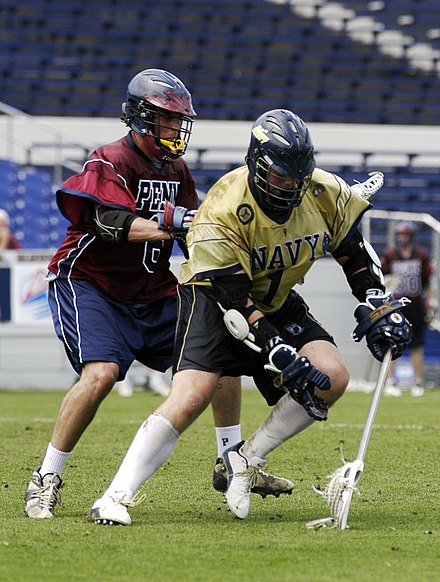 …
…
2. States Parties shall also take all appropriate measures to prevent all forms of exploitation, violence and abuse by providing, inter alia, appropriate forms of gender-sensitive assistance and support to persons with disabilities, their families and carers of persons with disabilities in including through awareness and education on how to avoid, identify and report exploitation, violence and abuse.States Parties shall ensure that protection services are provided in a gender-sensitive and disability-sensitive manner.
3. In an effort to prevent the manifestation of all forms of exploitation, violence and abuse, States Parties shall ensure that all institutions and programs designed to serve persons with disabilities are effectively monitored by independent bodies.
4. States Parties shall take all appropriate measures to facilitate the physical, cognitive and psychological recovery, rehabilitation and social reintegration of persons with disabilities who are victims of any form of exploitation, violence or abuse, including through the provision of protection services.Such recovery and reintegration takes place in an environment conducive to the health, well-being, self-esteem, dignity and autonomy of the individual concerned, and is responsive to gender-specific needs.
5. States Parties shall adopt effective legislation and policies, including those targeting women and children, to ensure that cases of exploitation, violence and abuse against persons with disabilities are identified, investigated and, where appropriate, prosecuted.
Article 17
Protection of personal integrity
Everyone with a disability has the right to have their physical and mental integrity respected on an equal basis with others.
Article 18
Freedom of movement and citizenship
1. States Parties recognize the rights of persons with disabilities to freedom of movement, to free choice of residence and to citizenship on an equal basis with others, including by ensuring that persons with disabilities:
a ) had the right to acquire and change citizenship and did not lose their citizenship arbitrarily or due to disability;
b ) were not deprived, due to disability, of the opportunity to obtain documents confirming their citizenship or other identity documents, to possess and use such documents, or to use appropriate procedures, for example, immigration procedures, which may be necessary to facilitate the exercise of the right to freedom of movement;
c ) had the right to freely leave any country, including their own;
d ) have not been deprived of the right to enter their own country arbitrarily or on the basis of disability.
2. Children with disabilities are registered immediately after birth and from the moment of birth have the right to a name and to acquire citizenship, as well as, to the greatest extent possible, the right to know their parents and the right to be cared for.
Article 19
Independent living and community involvement
The States Parties to this Convention recognize the equal right of all persons with disabilities to live in ordinary places of residence, subject to equal choices with others, and take effective and appropriate measures to promote the full realization of this right by persons with disabilities and their full inclusion and involvement in the local community. , including ensuring that:
a ) disabled persons had the opportunity to choose their place of residence and where and with whom to live on an equal basis with other people, and were not obliged to live in any particular housing conditions;
b ) people with disabilities have access to a variety of home, community and other community-based support services, including personal assistance needed to support and enroll in the local community, and to avoid isolation or segregation. from the local community;
c ) community services and facilities intended for the general population were equally accessible and responsive to people with disabilities.
Article 20
Individual mobility
States Parties shall take effective measures to ensure the individual mobility of persons with disabilities with the greatest possible degree of autonomy, including by:
a ) facilitating the individual mobility of persons with disabilities in a way they choose, at a time of their choice and at an affordable price;
b ) Facilitating access by persons with disabilities to quality mobility aids, devices, assistive technologies and services of assistants and intermediaries, including by providing them at an affordable price;
c ) training disabled people and specialists working with them in mobility skills;
d ) encouraging businesses that manufacture mobility aids, devices and assistive technologies to take into account all aspects of mobility for people with disabilities.
Article 21
Freedom of expression and opinion and access to information
States Parties shall take all appropriate measures to ensure that persons with disabilities can enjoy the right to freedom of expression and opinion, including the freedom to seek, receive and impart information and ideas on an equal basis with others, using all forms of communication of their choice as defined in article 2 of this Convention, including:
a ) providing people with disabilities with information intended for the general public, in accessible formats and using technologies that take into account different forms of disability, in a timely manner and at no additional cost;
b ) acceptance and promotion of the use in official communication: sign languages, Braille, amplifying and alternative communication methods and all other available methods, methods and formats of communication at the choice of disabled people;
c ) actively encouraging private enterprises that provide services to the general public, including via the Internet, to provide information and services in accessible and suitable formats for persons with disabilities;
d ) encouraging the media, including those providing information via the Internet, to make their services accessible to people with disabilities;
e ) recognizing and encouraging the use of sign languages.
Article 22
Privacy
1. Regardless of place of residence or living conditions, no disabled person should be subjected to arbitrary or unlawful encroachment on the inviolability of his privacy, family, home or correspondence and other forms of communication, or unlawful attacks on his honor and reputation. People with disabilities have the right to be protected by the law from such assault or attack.
2.States Parties shall protect the confidentiality of information about the identity, health and rehabilitation of persons with disabilities on an equal basis with others.
Article 23
Respect for home and family
1. States Parties shall take effective and appropriate measures to eliminate discrimination against persons with disabilities in all matters relating to marriage, family, fatherhood, motherhood and personal relationships, on an equal basis with others, while striving to ensure that:
a ) recognized the right of all persons with disabilities who have reached marriageable age to marry and found a family on the basis of the free and full consent of the spouses;
b ) recognize the rights of persons with disabilities to freely and responsibly decide the number and spacing of children and to access age-appropriate information and education on reproductive behavior and family planning, and provide the means to enable them to exercise these rights. ;
c ) people with disabilities, including children, preserved their fertility on an equal basis with others.
2. States Parties shall ensure the rights and obligations of persons with disabilities in relation to guardianship, guardianship, guardianship, adoption of children or similar institutions where these concepts are present in national legislation; in all cases, the best interests of the child are of paramount importance. States Parties shall provide adequate assistance to persons with disabilities in fulfilling their child-rearing responsibilities.
3. States Parties shall ensure that children with disabilities have equal rights in family life.To realize these rights and to ensure that children with disabilities are not hidden, abandoned, neglected and segregated, States Parties undertake to provide children with disabilities and their families with comprehensive information, services and support from the outset.
4. States Parties shall ensure that a child is not separated from his or her parents against their will, unless the competent authorities subject to judicial review, in accordance with applicable laws and procedures, determine that such separation is necessary in the best interests of the child.Under no circumstances can a child be separated from their parents because of the disability of either the child himself or one or both parents.
5. States Parties undertake, in the event that immediate family members are unable to provide care for a child with conditions for a child to live in the local community.
Article 24
Education
1. States Parties recognize the right of persons with disabilities to education. In order to realize this right without discrimination and on the basis of equality of opportunity, participating States shall ensure inclusive education at all levels and lifelong learning, while striving to:
a ) to the full development of human potential, as well as a sense of dignity and self-respect, and to the strengthening of respect for human rights, fundamental freedoms and human diversity;
b ) to the development of the personality, talents and creativity of persons with disabilities, as well as their mental and physical abilities to the fullest extent;
s ) to empower people with disabilities to participate effectively in the life of a free society.
2. In exercising this right, the participating States shall ensure that:
a ) disabled people were not excluded from the general education system due to disability, and disabled children were not excluded from the system of free and compulsory primary education or secondary education;
b ) persons with disabilities have access, on an equal basis with others, to inclusive, quality and free primary education and secondary education in their places of residence;
c ) reasonable accommodation is provided, taking into account individual needs;
d ) persons with disabilities receive the support required within the general education system to facilitate their effective learning;
e ), in an environment that is most conducive to learning and social development, effective individualized support measures have been taken to ensure full coverage.
3. States Parties shall provide opportunities for persons with disabilities to learn life and socialization skills in order to facilitate their full and equal participation in the educational process and as members of the local community. The participating States shall take appropriate measures in this direction, including:
a ) promote the development of Braille, alternative fonts, reinforcing and alternative communication methods, modes and formats, as well as orientation and mobility skills, and foster peer support and mentoring;
b ) promote the acquisition of sign language and the promotion of the linguistic identity of the deaf;
s ) ensure that the education of persons, in particular children, who are blind, deaf or deaf-blind, is carried out using the languages and methods and modes of communication most appropriate for the individual and in an environment that maximizes learning and social development.
4. To help ensure the realization of this right, States Parties shall take appropriate measures to recruit teachers, including teachers with disabilities, who are proficient in sign language and / or Braille, and to train professionals and staff working at all levels of the system. education. Such training encompasses disability education and the use of suitable reinforcing and alternative communication methods, modes and formats, teaching methods and materials to support persons with disabilities.
5. States Parties shall ensure that persons with disabilities can have access to general higher education, vocational training, adult education and lifelong learning, without discrimination and on an equal basis with others. To this end, States Parties shall ensure that reasonable accommodation is provided for persons with disabilities.
Article 25
Health
States Parties recognize that persons with disabilities have the right to the highest attainable standard of health, without discrimination on the basis of disability. States Parties shall take all appropriate measures to ensure that persons with disabilities have access to gender-sensitive health services, including health-related rehabilitation. Specifically participating States:
States Parties shall take all appropriate measures to ensure that persons with disabilities have access to gender-sensitive health services, including health-related rehabilitation. Specifically participating States:
a ) provide people with disabilities with the same range, quality and level of free or low-cost health care services and programs as others, including in the field of sexual and reproductive health and through government health programs offered to the population;
b ) provide those health services that people with disabilities need directly because of their disability, including early diagnosis and, where appropriate, correction and services designed to minimize and prevent further disability, including among children and the elderly;
s ) organize these health care services as close as possible to the places of direct residence of these people, including in rural areas;
d ) require health professionals to provide services of the same quality to persons with disabilities as others, including on the basis of free and informed consent through, inter alia, raising awareness of human rights, dignity, autonomy and the needs of persons with disabilities through teaching and adopting ethical standards for public and private health care;
e ) prohibit discrimination against persons with disabilities in the provision of health insurance and life insurance, where the latter is permitted by national law, and provide that it is provided on a fair and reasonable basis;
f ) do not discriminate against denial of health care or health services, or food or liquids on the basis of a disability.
Article 26
Habilitation and rehabilitation
1. States Parties shall take, including with the support of other persons with disabilities, effective and appropriate measures to empower persons with disabilities to achieve and maintain maximum independence, full physical, mental, social and professional abilities and full inclusion and involvement.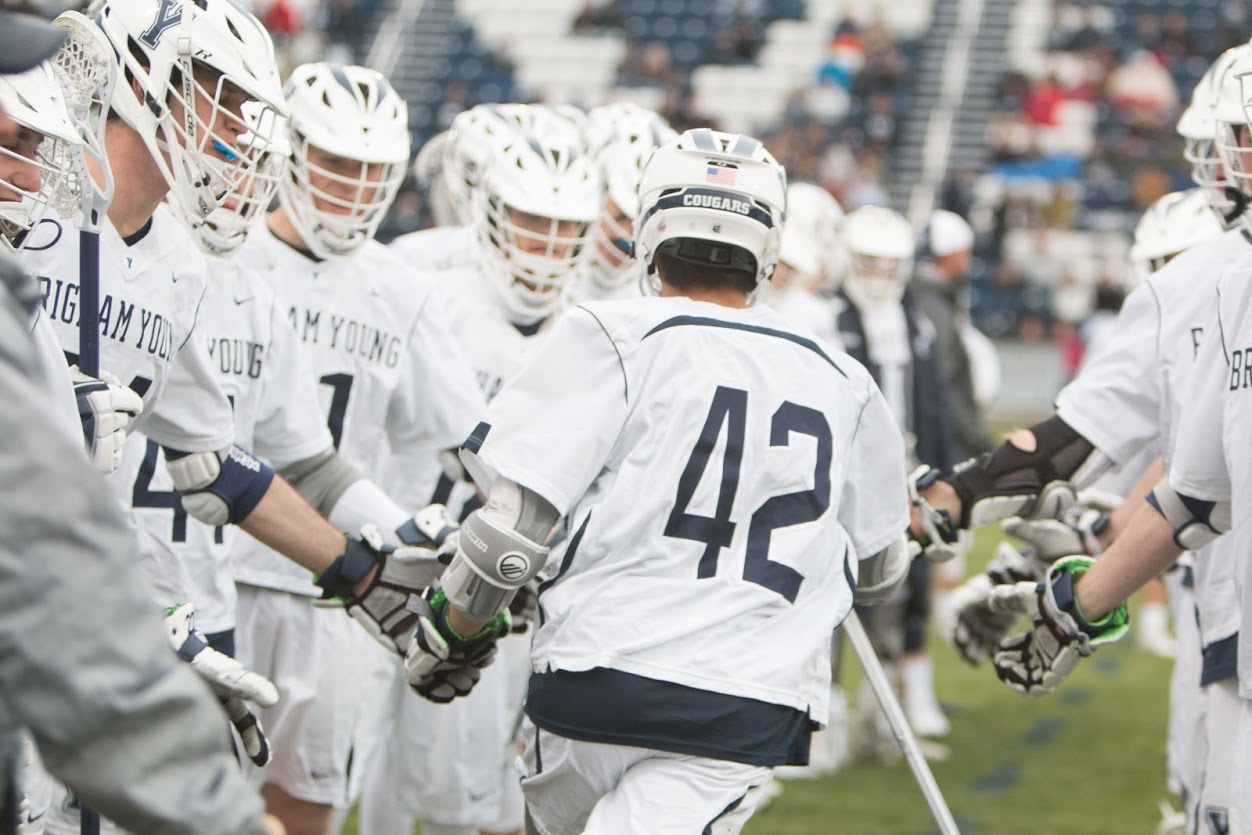 in all aspects of life. To this end, participating States shall organize, strengthen and expand comprehensive habilitation and rehabilitation services and programs, especially in the areas of health, employment, education and social services, so that these services and programs:
in all aspects of life. To this end, participating States shall organize, strengthen and expand comprehensive habilitation and rehabilitation services and programs, especially in the areas of health, employment, education and social services, so that these services and programs:
a ) began to be implemented as early as possible and were based on a multidisciplinary assessment of the needs and strengths of the individual;
b ) promoted involvement and inclusion in the local community and in all aspects of society, were voluntary and made accessible to persons with disabilities as close as possible to their immediate place of residence, including in rural areas.
2. The participating States shall encourage the development of initial and further training for professionals and personnel working in the field of habilitation and rehabilitation services.
3. States Parties shall encourage the availability, knowledge and use of habilitation and rehabilitation-related assistive devices and technologies designed for persons with disabilities.
Article 27
Labor and employment
1. States Parties recognize the right of persons with disabilities to work on an equal basis with others; it includes the right to be able to earn a living in work that the disabled person freely chooses or freely consents to, in an environment where the labor market and work environment are open, inclusive and accessible to people with disabilities.States Parties shall ensure and promote the realization of the right to work, including by those persons who become disabled during work, by adopting, including through legislation, appropriate measures aimed, inter alia, at the following:
a ) prohibition of discrimination on the basis of disability in all matters relating to all forms of employment, including conditions of recruitment, employment and employment, job retention, career advancement and safe and healthy working conditions;
b ) protection of the rights of persons with disabilities on an equal basis with others to fair and favorable working conditions, including equal opportunities and equal remuneration for work of equal value, safe and healthy working conditions, including protection from harassment, and satisfaction of complaints;
c ) ensuring that persons with disabilities can exercise their labor and trade union rights on an equal basis with others;
d ) empowering persons with disabilities to effectively access general technical and vocational guidance programs, employment services and vocational and continuing education;
e ) expanding employment opportunities for people with disabilities and their promotion in the labor market, as well as assistance in finding, obtaining, maintaining and resuming work;
f ) expanding opportunities for self-employment, entrepreneurship, development of cooperatives and organizing their own business;
g ) hiring people with disabilities in the public sector;
h ) Encourage the recruitment of persons with disabilities in the private sector through appropriate policies and measures, which may include affirmative action programs, incentives and other measures;
i ) providing disabled persons with reasonable adaptation of the workplace;
j ) encouraging the acquisition of work experience by persons with disabilities in an open labor market;
to ) encouragement of vocational and vocational rehabilitation programs, job retention and return to work for people with disabilities.
2. States Parties shall ensure that persons with disabilities are not held in slavery or servitude and are protected on an equal basis with others from forced or compulsory labor.
Article 28
Adequate standard of living and social protection
1. States Parties recognize the right of persons with disabilities to an adequate standard of living for themselves and their families, including adequate food, clothing and housing, and to the continuous improvement of living conditions, and take appropriate measures to ensure and promote the realization of this right without discrimination on the basis of disability …
2. States Parties recognize the right of persons with disabilities to social protection and to the enjoyment of this right without discrimination on the basis of disability, and shall take appropriate measures to ensure and promote the realization of this right, including measures:
a ) to ensure equal access to clean water for persons with disabilities and to ensure access to appropriate and affordable services, devices and other assistance to meet the needs related to disability;
b ) to ensure that persons with disabilities, in particular women, girls and older persons with disabilities, have access to social protection and poverty reduction programs;
c ) to ensure that persons with disabilities and their families living in poverty have access to government assistance to cover disability-related costs, including appropriate training, counseling, financial assistance and temporary foster care;
d ) to provide people with disabilities with access to public housing programs;
e ) to ensure access for persons with disabilities to retirement benefits and programs.
Article 29
Participation in political and public life
States Parties guarantee that persons with disabilities have political rights and the opportunity to enjoy them on an equal basis with others and undertake:
a ) ensure that persons with disabilities can effectively and fully participate, directly or through freely chosen representatives, in political and public life on an equal basis with others, including the right and opportunity to vote and be elected, in particular through:
i) ensuring that voting procedures, facilities and materials are suitable, accessible and easy to understand and use;
ii) Protecting the right of persons with disabilities to vote by secret ballot in elections and public referendums without intimidation and to stand for election, to actually hold office and perform all public functions at all levels of government – by promoting the use of assistive and new technologies, where it is appropriate;
(iii) Guaranteeing the free expression of the will of persons with disabilities as voters and, to this end, granting, where necessary, their requests for assistance from a person of their choice to vote for them;
b ) actively contribute to the creation of an environment in which persons with disabilities can effectively and fully participate in the management of public affairs, without discrimination and on an equal basis with others, and encourage their participation in public affairs, including:
i) participation in non-governmental organizations and associations whose work is related to the state and political life of the country, including in the activities of political parties and their leadership;
ii) Establishing and joining organizations of persons with disabilities in order to represent persons with disabilities at the international, national, regional and local levels.
Article 30
Participation in cultural life, leisure, recreation and sports
1. States Parties recognize the right of persons with disabilities to participate on an equal basis with others in cultural life and shall take all appropriate measures to ensure that persons with disabilities:
a ) had access to cultural works in accessible formats;
b ) had access to television programs, films, theater and other cultural events in accessible formats;
from ) had access to places of cultural events or services such as theaters, museums, cinemas, libraries and tourism services, and, as far as possible, had access to monuments and sites of national cultural significance.
2. States Parties shall take appropriate measures to enable persons with disabilities to develop and use their creative, artistic and intellectual potential – not only for their own benefit, but also for the enrichment of society as a whole.
3. States Parties shall take all appropriate steps, in accordance with international law, to ensure that laws protecting intellectual property rights do not constitute an unjustified or discriminatory barrier to the access of persons with disabilities to cultural works.
4. People with disabilities have the right, on an equal basis with others, to recognize and support their particular cultural and linguistic identity, including sign languages and the culture of the deaf.
5. To enable persons with disabilities to participate on an equal basis with others in leisure, recreation and sports activities, States Parties shall take appropriate measures:
a ) to encourage and promote the fullest possible participation of persons with disabilities in general sports events at all levels;
b ) to ensure that persons with disabilities have the opportunity to organize, develop and participate in sports and leisure activities specifically for persons with disabilities, and to help in this regard, that they are provided with adequate education, training and resources on an equal basis with others;
s ) to ensure that persons with disabilities have access to sports, recreation and tourism facilities;
d ) to ensure that children with disabilities have equal access with other children to participation in games, leisure and recreation and sports activities, including activities within the school system;
e ) to ensure that persons with disabilities have access to the services of those involved in the organization of leisure, tourism, recreation and sports activities.
Article 31
Statistics and data collection
1. States Parties undertake to collect appropriate information, including statistical and research data, to enable them to formulate and implement strategies for the implementation of this Convention. In the process of collecting and storing this information, it is necessary to:
a ) Comply with legally established safeguards, including data protection laws, to ensure the confidentiality and privacy of persons with disabilities;
b ) comply with internationally recognized standards for the protection of human rights and fundamental freedoms, as well as ethical principles in the collection and use of statistics.
2. Information collected in accordance with this Article shall be disaggregated and used to assist in assessing how States Parties are fulfilling their obligations under this Convention and to identify and address barriers that persons with disabilities face in the exercise of their rights.
3. States Parties take responsibility for the dissemination of these statistics and ensure their accessibility to persons with disabilities and others.
Article 32
International cooperation
1. States Parties recognize the importance of international cooperation and its promotion in support of national efforts to achieve the goals and objectives of this Convention and shall take appropriate and effective measures in this regard, interstate, and where appropriate, in partnership with relevant international and regional organizations. and civil society, in particular disabled people’s organizations.Such measures could include, inter alia:
a ) ensuring that international cooperation, including international development programs, is inclusive and accessible to persons with disabilities;
b ) Facilitate and support the strengthening of existing capabilities, including through the exchange of information, experiences, programs and best practices;
c ) promoting cooperation in research and access to scientific and technical knowledge;
d ) Provision, where appropriate, of technical and economic assistance, including by facilitating access to and exchange of accessible and assistive technologies, and through technology transfer.
2. The provisions of this article shall not affect the obligations of each State Party to fulfill its obligations under this Convention.
Article 33
National implementation and monitoring
1. States Parties shall, in accordance with their organizational arrangements, designate within government one or more authorities in charge of matters related to the implementation of this Convention and shall duly consider the possibility of establishing or appointing a coordination mechanism within government to facilitate relevant work in various sectors and different levels.
2. States Parties shall, in accordance with their legal and administrative arrangements, maintain, strengthen, designate or establish a structure, including, where appropriate, one or more independent mechanisms to promote, protect and monitor the implementation of this Convention. In designating or establishing such a mechanism, States parties shall take into account the principles relating to the status and functioning of national institutions for the protection and promotion of human rights.
3. Civil society, in particular persons with disabilities and their representative organizations, are fully involved and participate in the monitoring process.
Article 34
Committee on the Rights of Persons with Disabilities
1. The Committee on the Rights of Persons with Disabilities (hereinafter referred to as “the Committee”) is established and carries out the functions provided below.
2. At the time of the entry into force of this Convention, the Committee shall be composed of twelve experts.After another sixty ratifications or accessions to the Convention, the membership of the Committee is increased by six, reaching a maximum of eighteen members.
3. The members of the Committee shall serve in their personal capacity and of high moral character and recognized competence and experience in the field covered by this Convention.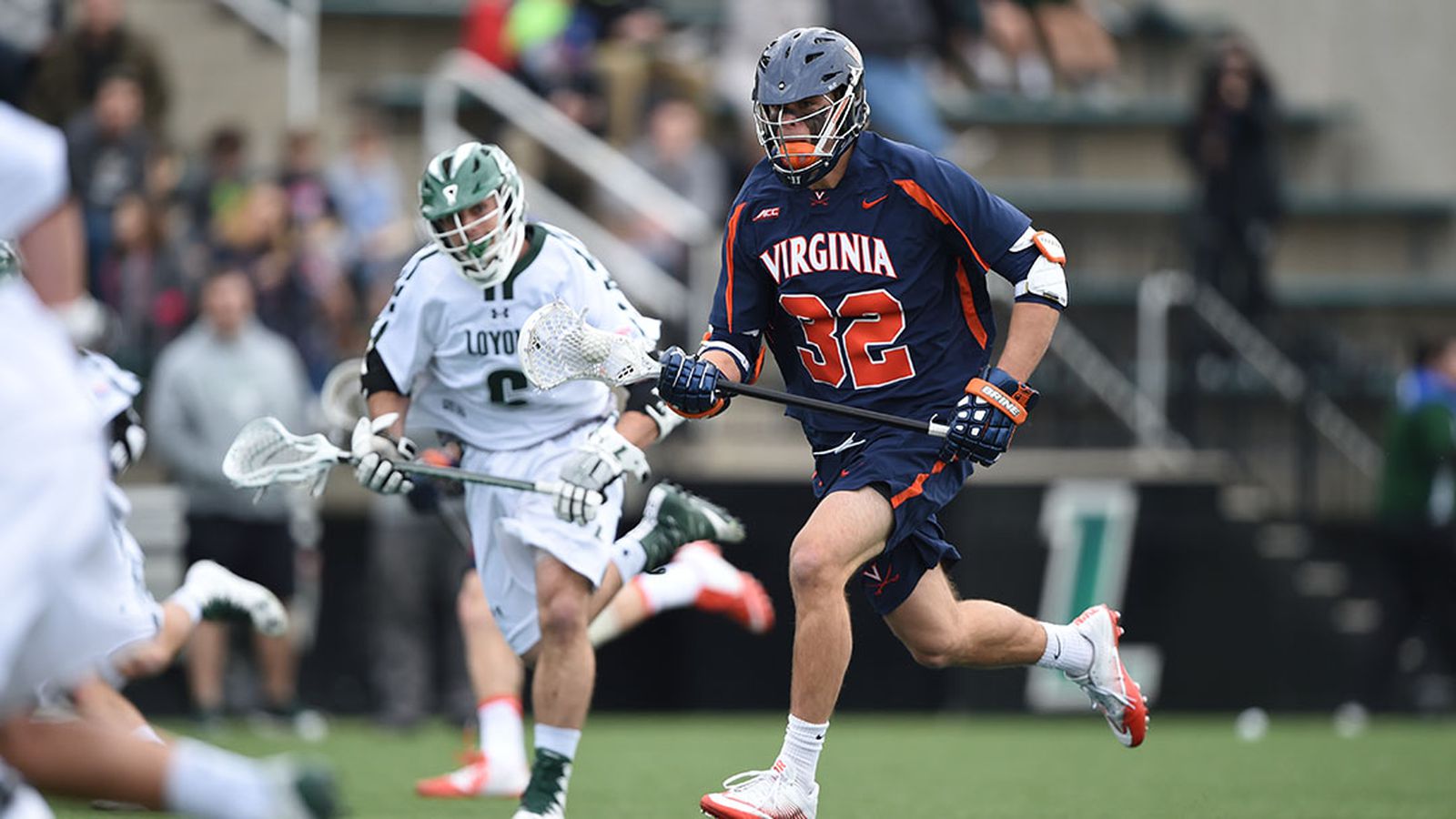 In nominating their candidates, States Parties are encouraged to take due account of the provision set out in article 4, paragraph 3, of this Convention.
In nominating their candidates, States Parties are encouraged to take due account of the provision set out in article 4, paragraph 3, of this Convention.
4. Members of the Committee are elected by States parties, with attention being paid to equitable geographical distribution, representation of different forms of civilization and major legal systems, gender balance and the participation of experts with disabilities.
5. Members of the Committee shall be elected by secret ballot from a list of candidates nominated by States Parties from among their nationals at meetings of the Conference of States Parties.At these meetings, at which two thirds of the States Parties constitute a quorum, the candidates elected to the Committee shall be those who have received the largest number of votes and an absolute majority of the votes of the representatives of the States Parties present and voting.
6. The initial election shall be held no later than six months after the date of the entry into force of this Convention. At least four months before the date of each election, the Secretary-General of the United Nations shall write to the participating States inviting them to submit nominations within two months.The Secretary-General shall then draw up, in alphabetical order, a list of all candidates thus nominated, indicating the States Parties that have nominated them, and forwards it to the States Parties to this Convention.
7. The members of the Committee are elected for a four-year term. They are eligible for re-election only once. However, the terms of office of six of the members elected in the first election expire at the end of the biennium; immediately after the first election, the names of these six members shall be determined by lot by the presiding officer of the sitting referred to in paragraph 5 of this article.
8. The election of six additional members of the Committee shall be timed to coincide with ordinary elections governed by the relevant provisions of this article.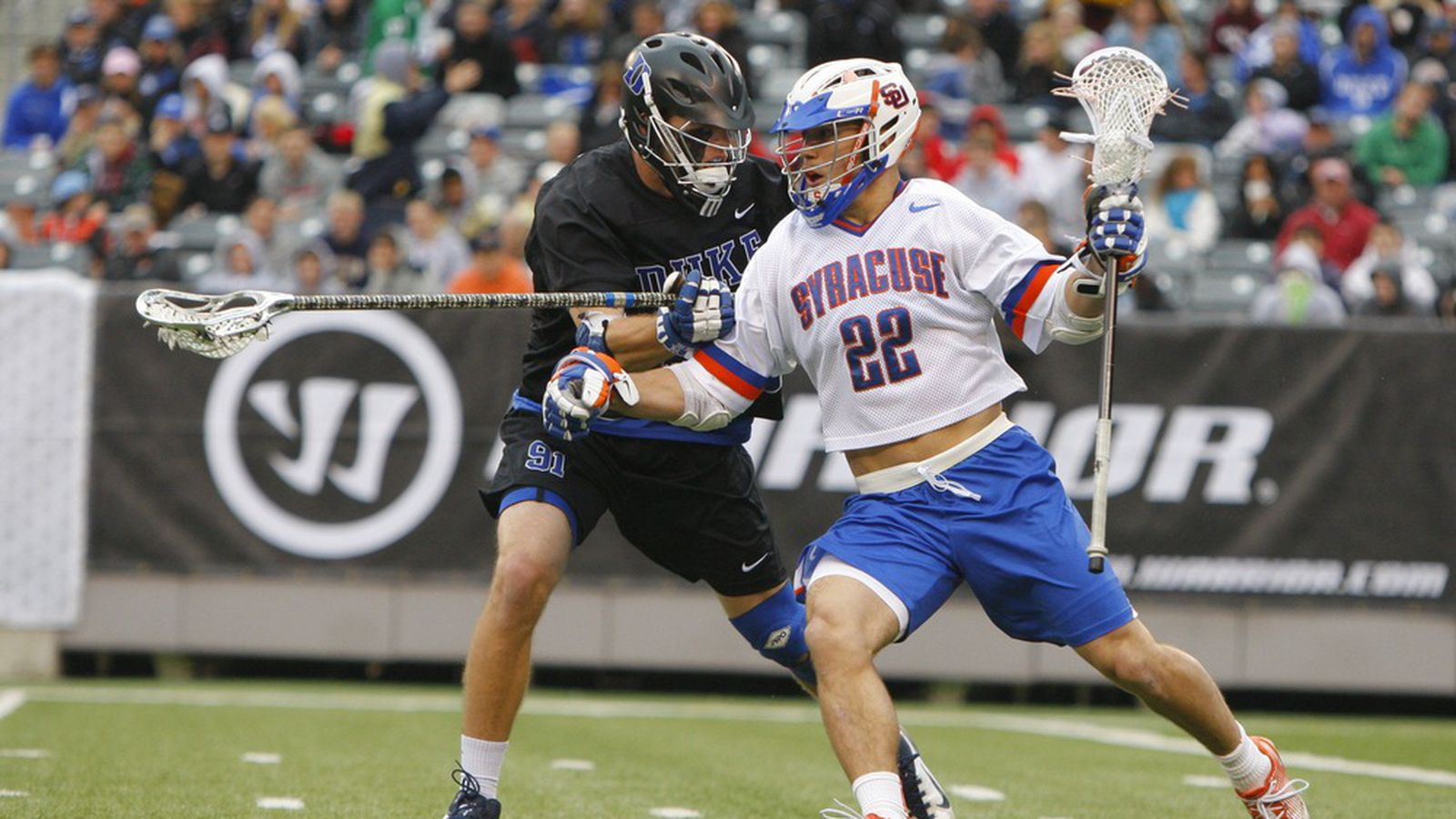
9. If a member of the Committee dies or resigns, or declares that it is no longer in a position to carry out his duties for any other reason, the nominating State Party of that member shall appoint another expert for the remainder of his term of office. qualifications and meeting the requirements provided for in the relevant provisions of this article.
10. The Committee shall establish its own rules of procedure.
11. The Secretary-General of the United Nations shall provide the necessary personnel and facilities for the effective exercise of its functions by the Committee in accordance with this Convention and shall convene its first meeting.
12. Members of the Committee established under this Convention shall receive remuneration, approved by the General Assembly of the United Nations, from funds of the United Nations in a manner and under conditions established by the Assembly, taking into account the importance of the responsibilities of the Committee.
13. Members of the Committee are entitled to the facilities, privileges and immunities of experts on mission for the United Nations, as enshrined in the relevant sections of the Convention on the Privileges and Immunities of the United Nations.
Article 35
Reports by States Parties
1. Each State Party shall submit to the Committee, through the Secretary-General of the United Nations, a comprehensive report on the measures taken to implement its obligations under this Convention and on progress made in this regard, within two years of the entry into force of this Convention for of the respective State Party.
2. Subsequently, States parties shall submit subsequent reports at least every four years, and also when requested by the Committee.
3. The Committee shall establish guidelines for the content of the reports.
4. A State party that has submitted a comprehensive initial report to the Committee does not need to repeat the information previously provided in its subsequent reports./cdn.vox-cdn.com/uploads/chorus_image/image/61649913/_V9T0302.0.jpg) States parties are encouraged to consider making the preparation of reports to the Committee an open and transparent process, and to take due account of the provision set out in article 4, paragraph 3, of this Convention.
States parties are encouraged to consider making the preparation of reports to the Committee an open and transparent process, and to take due account of the provision set out in article 4, paragraph 3, of this Convention.
5. The reports may indicate factors and difficulties affecting the degree of fulfillment of the obligations under this Convention.
Article 36
Consideration of reports
1. Each report is examined by the Committee, which makes suggestions and general recommendations on it as it deems appropriate and forwards them to the State party concerned. The State party may reply to the Committee with any information of its choice.The Committee may request additional information from States Parties relevant to the implementation of this Convention.
2. When a State Party is significantly behind in the submission of a report, the Committee may notify the State Party concerned that, if no report is submitted within three months after this notification, the implementation of this Convention in that State Party will be required. consider on the basis of reliable information available to the Committee.The Committee invites the State party concerned to participate in such a review. If the State Party responds by submitting a report, the provisions of paragraph 1 of this article shall apply.
3. The Secretary-General of the United Nations shall make the reports available to all States Parties.
4. States Parties shall make their reports widely available to the public in their country and facilitate familiarization with the proposals and general recommendations related to these reports.
5. Whenever the Committee deems it appropriate, it shall forward the reports of States parties to the specialized agencies, funds and programs of the United Nations and to other competent authorities, in order to draw attention to the request for technical advice or assistance expressed therein or the indication of the need therein. in the latter, together with the Committee’s comments and recommendations (if any) on these requests or directions.
in the latter, together with the Committee’s comments and recommendations (if any) on these requests or directions.
Article 37
Cooperation between States Parties and the Committee
1.Each State party cooperates with the Committee and assists its members in fulfilling their mandate.
2. In its relations with States Parties, the Committee shall take due account of ways and means of enhancing national capacities to implement this Convention, including through international cooperation.
Article 38
Relations of the Committee with other bodies
To facilitate the effective implementation of this Convention and to encourage international cooperation in the field covered by it:
a ) The specialized agencies and other organs of the United Nations shall have the right to be represented when considering the implementation of such provisions of this Convention as fall within their mandate.When the Committee considers it appropriate, it may invite the specialized agencies and other competent authorities to provide expert advice on the implementation of the Convention in areas falling within their respective mandates. The Committee may invite specialized agencies and other United Nations bodies to submit reports on the implementation of the Convention in areas falling within the scope of their activities;
b ) In carrying out its mandate, the Committee shall consult, as appropriate, with other relevant bodies established by international human rights treaties to ensure consistency in their respective reporting guidelines as well as in their submissions. proposals and general recommendations and avoid duplication and overlap in the performance of their functions.
Article 39
Report of the Committee
The Committee submits a report on its activities to the General Assembly and the Economic and Social Council every two years and may make proposals and general recommendations based on the consideration of reports and information received from States parties. Such suggestions and general recommendations are included in the Committee’s report, together with comments (if any) by States parties.
Article 40
Conference of the States Parties
1. The States Parties shall meet regularly in the Conference of the States Parties to consider any question concerning the implementation of this Convention.
2. Not later than six months after the entry into force of this Convention, the Secretary-General of the United Nations shall convene a Conference of States Parties. Subsequent meetings are convened by the Secretary General every two years or as decided by the Conference of the States Parties.
Article 41
Depositary
The Secretary-General of the United Nations is the depositary of this Convention.
Article 42
Signing
This Convention shall be open for signature by all States and regional integration organizations at United Nations Headquarters in New York from 30 March 2007.
Article 43
Consent to be bound
This Convention shall be subject to ratification by the signatory States and to formal confirmation by the signatory regional integration organizations.It is open for accession by any state or regional integration organization that has not signed this Convention.
Article 44
Regional Integration Organizations
1. “Regional Integration Organization” means an organization created by the sovereign States of a given region, to which its member States have transferred competence in respect of matters governed by this Convention. Such organizations shall indicate in their documents of formal confirmation or accession the extent of their competence in relation to the matters governed by this Convention.Subsequently, they inform the depositary of any significant changes in the scope of their competence.
2. References in this Convention to “States Parties” refer to such organizations within their competence.
3. For the purposes of paragraph 1 of Article 45 and paragraphs 2 and 3 of Article 47 of this Convention, no instrument deposited by a regional integration organization shall be counted.
4. In matters within their competence, regional integration organizations may exercise their right to vote in the Conference of the States Parties with a number of votes equal to the number of their member States that are parties to this Convention.Such an organization shall not exercise its right to vote if any of its member states exercise its right, and vice versa.
Article 45
Entry into force
1. This Convention shall enter into force on the thirtieth day following the date of the deposit of the twentieth instrument of ratification or accession.
2. For each State or regional integration organization ratifying, formally confirming or acceding to this Convention after the deposit of the twentieth such instrument, the Convention shall enter into force on the thirtieth day after the deposit of its such instrument.
Article 46
Reservations
1. Reservations incompatible with the object and purpose of this Convention are not permitted.
2. Reservations can be withdrawn at any time.
Article 47
Amendments
1. Any State Party may propose an amendment to this Convention and submit it to the Secretary-General of the United Nations. The Secretary General shall communicate any proposed amendments to the States Parties, requesting that they be notified if they favor a conference of States Parties to consider and take action on these proposals.In the event that, within four months from the date of such communication, at least one third of the States Parties favor such a conference, the Secretary-General shall convene the conference under the auspices of the United Nations. Any amendment approved by a two-thirds majority of the States Parties present and voting shall be forwarded by the Secretary-General to the United Nations General Assembly for approval and then to all States Parties for adoption.
2. An amendment approved and approved in accordance with paragraph 1 of this article shall enter into force on the thirtieth day after the number of instruments of acceptance deposited reaches two thirds of the number of States Parties on the date of approval of the amendment. Subsequently, the amendment shall enter into force for any State Party on the thirtieth day following the deposit of its instrument of acceptance. The amendment is only binding on those participating States that have accepted it.
3. If the Conference of the States Parties decides by consensus, an amendment approved and approved in accordance with paragraph 1 of this article, which relates exclusively to Articles 34, 38, 39 and 40, shall enter into force for all States Parties on the thirtieth day after the number of instruments of acceptance deposited reaches two thirds of the number of States Parties at the date of approval of this amendment.
Article 48
Denunciation
A State Party may denounce this Convention by written notification to the Secretary-General of the United Nations.Denunciation shall take effect one year after the date on which such notification is received by the Secretary General.
Article 49
Available format
The text of this Convention shall be available in accessible formats.
Article 50
Authentic texts
The Arabic, Chinese, English, French, Russian and Spanish texts of this Convention are equally authentic.
IN WITNESS WHEREOF the undersigned plenipotentiaries, being duly authorized thereto by their respective Governments, have signed this Convention.
Optional Protocol to the Convention on the Rights of Persons with Disabilities
The States Parties to this Protocol have agreed as follows:
Article 1
1. A State Party to this Protocol (“the State Party”) recognizes the competence of the Committee on the Rights of Persons with Disabilities (“the Committee”) to receive and consider communications from individuals or groups of individuals under its jurisdiction who claim to be victims of a violation by that State. party to the provisions of the Convention, or on their behalf.
2. A communication shall not be received by the Committee if it concerns a State Party to the Convention that is not a party to this Protocol.
Article 2
The Committee considers a communication inadmissible when:
a ) the message is anonymous;
b ) the communication constitutes an abuse of the right to submit such communications or is incompatible with the provisions of the Convention;
c ) the same matter has already been considered by the Committee or has been considered or is being considered under another procedure of international investigation or settlement;
d ) not all available internal remedies have been exhausted.This rule does not apply when the use of remedies is unreasonably prolonged or unlikely to have an effective effect;
e ) it is manifestly unfounded or insufficiently reasoned, or
f ) the facts that are the subject of the communication occurred prior to the entry into force of this Protocol for the State Party concerned, unless those facts continued after that date.
Article 3
Subject to the provisions of article 2 of this Protocol, the Committee shall confidentially bring any communications submitted to it to the attention of the State Party.Within six months, the notified State shall submit to the Committee written explanations or statements clarifying the issue or remedy (if any) that may have been applied by that State.
Article 4
1. At any time between the receipt of a communication and the issuance of a determination on the merits, the Committee may request the State party concerned for prompt consideration to take such provisional measures as may be necessary to avoid possible irreparable harm to the victim, or victims of the alleged violation.
2. When the Committee exercises its discretion in accordance with paragraph 1 of this article, this does not mean that it has taken a decision as to its admissibility on the merits.
Article 5
When considering communications under this Protocol, the Committee shall meet in private. After examining the communication, the Committee sends its proposals and recommendations (if any) to the State party concerned and to the complainant.
Article 6
1. If the Committee receives reliable information indicating serious or systematic violations by a State party of the rights enshrined in the Convention, it invites that State party to cooperate in studying this information and, to that end, submit comments on the relevant information.
2. Taking into account any comments that may be submitted by the State party concerned, as well as any other reliable information available to it, the Committee may instruct one or more of its members to investigate and promptly submit a report to the Committee.Where warranted and with the consent of the State party, the investigation may include a visit to its territory.
3. After examining the results of such an investigation, the Committee shall transmit these results to the State party concerned, together with any comments and recommendations.
4. Within six months of the receipt of the results, comments and recommendations transmitted by the Committee, the State party shall submit its observations to it.
5. Such an investigation is conducted in confidence and it is expected that the State party will be asked for cooperation at all stages of the process.
Article 7
1. The Committee may invite the State party concerned to include in its report under article 35 of the Convention details of any action taken in response to an investigation conducted pursuant to article 6 of this Protocol.
2.If necessary, the Committee may, after the expiration of the six-month period referred to in article 6, paragraph 4, invite the State party concerned to inform it of the measures taken in response to such an inquiry.
Article 8
Each State Party may, at the time of signing, ratifying or acceding to this Protocol, declare that it does not recognize the competence of the Committee provided for in articles 6 and 7.
Article 9
The Secretary-General of the United Nations is the depositary of this Protocol.
Article 10
This Protocol shall be open for signature by signatory States and regional integration organizations at United Nations Headquarters in New York since 30 March 2007.
Article 11
This Protocol is subject to ratification by signatory States that have ratified or acceded to the Convention. It is subject to formal confirmation by signatory regional integration organizations that have officially endorsed or acceded to the Convention.It is open to accession by any State or regional integration organization which has ratified, formally confirmed or acceded to the Convention and which have not signed this Protocol.
Article 12
1. “Regional Integration Organization” means an organization established by the sovereign States of a given region, to which its member States have transferred competence in respect of matters governed by the Convention and this Protocol.Such organizations shall indicate in their documents of formal confirmation or accession the extent of their competence in relation to matters governed by the Convention and this Protocol. Subsequently, they inform the depositary of any significant changes in the scope of their competence.
2. References in this Protocol to “States Parties” refer to such organizations within their competence.
3. For the purposes of paragraph 1 of Article 13 and paragraph 2 of Article 15 of this Protocol, no instrument deposited by a regional integration organization shall be counted.
4. In matters within their competence, regional integration organizations may exercise their right to vote at a meeting of States Parties with a number of votes equal to the number of their member States that are parties to this Protocol. Such an organization shall not exercise its right to vote if any of its member states exercise its right, and vice versa.
Article 13
1. Subject to the entry into force of the Convention, this Protocol shall enter into force on the thirtieth day after the deposit of the tenth instrument of ratification or accession.
2. For each State or regional integration organization ratifying, formally confirming or acceding to this Protocol after the deposit of the tenth such instrument, the Protocol shall enter into force on the thirtieth day after the deposit of their such instrument.
Article 14
1. Reservations incompatible with the object and purpose of this Protocol are not permitted.
2. Reservations can be withdrawn at any time.
Article 15
1. Any State Party may propose an amendment to this Protocol and submit it to the Secretary-General of the United Nations. The Secretary General shall communicate any proposed amendments to the States Parties, requesting that they be notified if they are in favor of holding a meeting of States Parties to consider and take action on these proposals. In the event that, within four months from the date of such communication, at least one third of the States Parties favor such a meeting, the Secretary-General shall convene the meeting under the auspices of the United Nations.Any amendment approved by a two-thirds majority of the States Parties present and voting shall be forwarded by the Secretary-General to the United Nations General Assembly for approval and then to all States Parties for adoption.
2. An amendment approved and approved in accordance with paragraph 1 of this article shall enter into force on the thirtieth day after the number of instruments of acceptance deposited reaches two thirds of the number of States Parties on the date of approval of the amendment.Subsequently, the amendment shall enter into force for any State Party on the thirtieth day following the deposit of its instrument of acceptance. The amendment is only binding on those participating States that have accepted it.
Article 16
A State Party may denounce this Protocol by written notification to the Secretary-General of the United Nations. Denunciation shall take effect one year after the date on which such notification is received by the Secretary General.
Article 17
The text of this Protocol shall be available in accessible formats.
Article 18
The Arabic, Chinese, English, French, Russian and Spanish texts of this Protocol are equally authentic.
IN WITNESS WHEREOF the undersigned plenipotentiaries, being duly authorized thereto by their respective Governments, have signed this Protocol.
90,000 Convention on the Rights of Persons with Disabilities – Council of Europe
(Unofficial statement)
Article 1.
The purpose of this Convention is to promote, protect and ensure the full and equal enjoyment of all human rights and fundamental freedoms by all persons with disabilities, and to promote respect for their inherent dignity. Persons with disabilities are persons with persistent physical, mental, intellectual or sensory impairments that, when interacting with various barriers, may interfere with their full and effective participation in society on an equal basis with others.
Article 2.
Definitions This article defines some of the basic terms used in the Convention, including such as “communication”; “language”; “Discrimination based on disability”; “Smart accommodations” and “universal design”.
Article 3.
General principles The principles of the Convention are respect for inherent human dignity, non-discrimination, full and effective involvement and inclusion in society, respect for particularities, equality of opportunity, accessibility, equality of men and women, respect for the rights of children with disabilities.
Article 4.
General Obligations Members undertake to ensure and promote the full enjoyment of all human rights and fundamental freedoms by all persons with disabilities, without discrimination of any kind on the basis of disability.
Article 5.
Equality and non-discrimination All persons are equal before and under the law and have the right to equal protection and equal enjoyment of the law without any discrimination.
Article 6.
Women with disabilities Women with disabilities and girls with disabilities are subject to multiple discrimination, and States Parties shall take all appropriate measures to guarantee them the enjoyment and enjoyment of the human rights and fundamental freedoms enshrined in this Convention.
Article 7.
Children with disabilities Children with disabilities have the same human rights as other children. In all action for children with disabilities, the best interests of the child are given priority. Children with disabilities have the right to freely express their views on all issues that affect them.
Article 8.
Educational work Countries should raise awareness of the rights, opportunities and contributions of persons with disabilities. Countries must combat stereotypes and prejudices associated with persons with disabilities through campaigning, education, media and educational programs.
Article 9.
Accessibility Persons with disabilities have the right to participate fully in all aspects of life, including access on an equal basis with others to the physical environment, transport, information and communication, and other facilities and services open to the public,
Article 10.
The right to life People with disabilities have the right to life. States Parties shall take all necessary measures to ensure its effective implementation by persons with disabilities on an equal basis with others.
Article 11.
Situations of risk and humanitarian emergencies States Parties shall take all necessary measures to ensure the protection and safety of persons with disabilities in situations of risk, including armed conflict, humanitarian emergencies and natural disasters.
Article 12.
Equality before the law Every person with a disability has the right to equal legal protection. People with disabilities have legal capacity on an equal basis with others in all aspects of life. States Parties shall take appropriate measures to ensure that persons with disabilities have access to the support they may need in realizing their legal capacity.
Article 13. Access to justice Persons with disabilities have the right, on an equal basis with others, to effective access to justice, including through procedural and age-appropriate adjustments.
Article 14.
Liberty and security of person Persons with disabilities enjoy the right to liberty and security of person on an equal basis with others. The presence of a disability in no way becomes a basis for imprisonment.
Section 15.
Freedom from torture and cruel, inhuman or degrading treatment or punishment. Disabled persons, on an equal basis with others, are not subjected to torture or cruel, inhuman or degrading treatment or punishment.No person should be subjected to medical or scientific experimentation without his free consent.
Section 16.
Freedom from exploitation, violence and abuse Persons with disabilities have the right to be protected both at home and outside of all forms of exploitation, violence and abuse, including those that are gender-based.
Section 17.
Protection of Personal Integrity Every person with disabilities has the right to have their physical and mental integrity respected on an equal basis with others.
Section 18.
Freedom of movement and citizenship People with disabilities have the right to citizenship. Children with disabilities have the right to a name and also the right to know their parents and the right to be cared for.
Section 19.
Independent living and community involvement Persons with disabilities have the right to live independently in society. States Parties shall ensure that persons with disabilities have the opportunity to choose where and with whom to live, and have access to other support services necessary to support life.
Article 20.
Individual mobility States Parties shall take effective measures to ensure the individual mobility of persons with disabilities with the greatest possible degree of autonomy by facilitating the individual mobility of persons with disabilities in a manner of their choosing, at a time of their choosing and at an affordable cost. People with disabilities have the right to have access to quality mobility aids, devices, assistive technologies and assistance and intermediary services.
Article 21.
Freedom of expression and opinion and access to information People with disabilities have the right to express their opinion, including the freedom to impart and receive information and ideas through all forms of communication, including accessible formats and technologies, sign languages, Braille, enhancing and alternative means of communication , The media and all other available means of communication.
Article 22.
Privacy Persons with disabilities have the right to privacy.Information about people with disabilities, including personal and health information, must be protected.
Article 23.
Respect for Home and Family People with disabilities have the right to marry and found a family. Countries should provide effective and appropriate support for children with disabilities in raising children, and provide alternative care for children with disabilities when their immediate family cannot provide them.
Article 24.
Education People with disabilities have the right to education without discrimination.Countries must ensure that persons with disabilities can have access to inclusive, quality and free primary and secondary education in their communities. Countries must also provide reasonable accommodation and individual support to maximize scientific and social development.
Article 25.
Health People with disabilities have the right to the highest attainable standard of health without discrimination. Countries should take all appropriate measures, including gender-sensitive measures, to ensure that persons with disabilities have access to the same range, quality and level of health services that all others have and that are close to where they live. disabled people.
Article 26.
Habilitation and Rehabilitation Countries should take effective and appropriate measures to enable persons with disabilities to develop, achieve and maintain maximum levels of habilitation, independence and participation through the provision of habilitation and rehabilitation services and programs.
Article 27.
Work and employment People with disabilities have the right to work, including the right to work in conditions that are open, inclusive and accessible.Countries should take the necessary steps to promote employment and career opportunities for people with disabilities.
Article 28.
Adequate standard of living and social protection People with disabilities have the right to an adequate standard of living, including food, water, clothing and housing, as well as to effective social protection, including poverty reduction and public housing programs.
Article 29.
Political and Public Participation Persons with disabilities have the right to participate, directly or through freely chosen representatives, in political and public life.
Article 30.
Participation in cultural life, leisure and recreation and sports Disabled persons have the right to participate in cultural life on an equal basis with others, including access to cultural materials, performances and services, as well as to participate in leisure and recreation and sports …
Article 31.
Statistics and data collection States Parties undertake to collect appropriate information on persons with disabilities, with the active involvement of persons with disabilities, in order to remove the barriers they face in the exercise of their rights.
Articles 32-50
Articles 32-50 explain how countries that have acceded to the Convention should fully implement it. It also explains the responsibility of countries in relation to reports to the UN Committee on the Rights of Persons with Disabilities on how they comply with this Convention.
Source: Center for Human Rights for Persons with Disabilities: www.disabilityhumanrights.org
90,000 Why is the Convention on the Rights of Persons with Disabilities important?
Question: Why is the Convention on the Rights of Persons with Disabilities important?
Answer: People with disabilities are often denied opportunities to work, attend school and participate fully in society, which creates barriers to their well-being and success.The Convention on the Rights of Persons with Disabilities is important because it is a tool to ensure that persons with disabilities have access to those rights and opportunities that are available to others. There are approximately 1 billion people with disabilities in the world. Often these are the poorest people. In all communities, they suffer from stigma and discrimination.
The Convention is a human rights agreement developed by representatives of the international community, including persons with disabilities, representatives of governments, non-governmental organizations and other institutions, with the aim of changing the perception and treatment of persons with disabilities in society.
By considering disability not as a matter of medicine, charity or addiction, the Convention requires people around the world to understand disability as a human rights issue. The Convention covers many areas where barriers may arise, such as physical access to buildings, roads and movement, and access to information through written and electronic communication. The convention also aims to reduce stigma and discrimination, which are often the reasons people with disabilities are denied education, employment, health care and other services.
For the first time, a legally binding international instrument has been enacted to ensure that states that have ratified the agreement will promote and protect the rights of persons with disabilities. The next step for these states will be to enact their national civil rights legislation to improve the lives of persons with disabilities.
Related links
90,000 UKSIVT – Convention on the Rights of Persons with Disabilities
CONVENTION ON THE RIGHTS OF PERSONS WITH DISABILITIES
ADOPTED BY RESOLUTION 61/106 OF THE GENERAL ASSEMBLY OF 13 DECEMBER 2006
PREAMBLE
States Parties to this Convention,
(a) Recalling the principles proclaimed in the Charter of the United Nations, in which the inherent dignity and worth of all members of the human family and their equal and inalienable rights are recognized as the basis of freedom, justice and peace in the world,
b) Recognizing that the United Nations has proclaimed and enshrined in the Universal Declaration of Human Rights and the International Covenants on Human Rights that everyone has all the rights and freedoms provided for therein, without distinction of any kind,
c) Reaffirming the universality, indivisibility, interdependence and interrelatedness of all human rights and fundamental freedoms, and the need to ensure that persons with disabilities enjoy their full enjoyment without discrimination,
d) Recalling the International Covenant on Economic, Social and Cultural Rights, the International Covenant on Civil and Political Rights, the International Convention on the Elimination of All Forms of Racial Discrimination, the Convention on the Elimination of All Forms of Discrimination against Women, the Convention against Torture and Other Cruel, Inhuman or degrading treatment or punishment, Convention on the Rights of the Child and International Convention on the Protection of the Rights of All Migrant Workers and Members of Their Families,
e) Recognizing that disability is an evolving concept and that disability is the result of interactions that occur between people with disabilities and attitudinal and environmental barriers that prevent them from participating fully and effectively in society on an equal basis with others,
f) Recognizing the importance that the principles and guidelines contained in the World Program of Action for Persons with Disabilities and the Standard Rules on the Equalization of Opportunities for Persons with Disabilities have in terms of influencing the promotion, formulation and evaluation of strategies, plans, programs and activities at national , regional and international levels to further ensure equal opportunities for persons with disabilities,
g) Stressing the importance of mainstreaming disability issues as part of relevant sustainable development strategies,
h) Recognizing also that discrimination against any person on the basis of disability constitutes an infringement on the inherent dignity and worth of the human person,
i) further recognizing the diversity of persons with disabilities,
j) Recognizing the need to promote and protect the human rights of all persons with disabilities, including those in need of increased support,
k) Concerned that, despite these various instruments and initiatives, persons with disabilities continue to face barriers to their participation in society as equal members and violations of their human rights in all parts of the world,
l) Recognizing the importance of international cooperation to improve the living conditions of persons with disabilities in every country, especially in developing countries,
m) Recognizing the valuable current and potential contributions of persons with disabilities to the overall well-being and diversity of their local communities, and the fact that promoting the full enjoyment of their human rights and fundamental freedoms by persons with disabilities and the full participation of persons with disabilities will enhance their sense of belonging and make significant progress in human, social and economic development of society and the eradication of poverty,
n) Recognizing that personal autonomy and independence is important for persons with disabilities, including the freedom to make their own choices,
o) Considering that persons with disabilities should be able to be actively involved in decision-making processes regarding policies and programs, including those that directly concern them,
p) Concerned about the difficult conditions faced by persons with disabilities who are subject to multiple or aggravated forms of discrimination based on race, color, sex, language, religion, political or other opinion, national, ethnic, indigenous or social origin, property status, birth , age or other circumstance,
q) Recognizing that women and girls with disabilities, both at home and outside, are often at greater risk of violence, injury or abuse, neglect or neglect, abuse or exploitation,
r) Recognizing that children with disabilities should fully enjoy all human rights and fundamental freedoms on an equal basis with other children, and recalling in this regard the obligations assumed by States parties to the Convention on the Rights of the Child,
s) Stressing the need to integrate a gender perspective in all efforts to promote the full enjoyment of human rights and fundamental freedoms by persons with disabilities,
(t) Emphasizing that the majority of persons with disabilities live in poverty, and recognizing in this regard the urgent need to address the negative impact of poverty on persons with disabilities,
u) Considering that an environment of peace and security based on full respect for the purposes and principles set out in the Charter of the United Nations and on the observance of applicable human rights treaties is a sine qua non for the full protection of persons with disabilities, in particular during armed conflicts and foreign occupation,
v) Recognizing the importance of accessibility to the physical, social, economic and cultural environment, health and education, as well as information and communication, as it enables persons with disabilities to fully enjoy all human rights and fundamental freedoms,
w) Whereas each individual, having responsibilities towards others and the community to which he belongs, must seek to promote and respect the rights recognized in the International Bill of Human Rights,
x) Convinced that the family is the natural and fundamental unit of society and has the right to be protected by society and the state, and that persons with disabilities and their family members should receive the necessary protection and assistance to enable families to contribute to the full and equal enjoyment rights of persons with disabilities,
y) Convinced that a comprehensive and uniform international convention to promote and protect the rights and dignity of persons with disabilities will make an important contribution to overcoming the deeply disadvantaged social situation of persons with disabilities and to enhancing their participation in civil, political, economic, social and cultural life under equal conditions opportunities – in both developed and developing countries,
Have agreed as follows:
Article 1.Target
The purpose of this Convention is to promote, protect and ensure the full and equal enjoyment of all human rights and fundamental freedoms by all persons with disabilities, and to promote respect for their inherent dignity.
Persons with disabilities are persons with persistent physical, mental, intellectual or sensory impairments that, when interacting with various barriers, may interfere with their full and effective participation in society on an equal basis with others.
Article 2.Definitions
For the purposes of this Convention:
“communication” includes the use of languages, texts, Braille, tactile communication, large print, accessible multimedia, as well as printed materials, audio tools, common language, readers, as well as augmentative and alternative methods, methods and formats of communication, including accessible information -communication technology;
“language” includes speech and sign languages and other forms of non-speech languages;
“discrimination on the basis of disability” means any distinction, exclusion or limitation on grounds of disability, the purpose or result of which is to diminish or deny the recognition, exercise or exercise, on an equal basis with others, of all human rights and fundamental freedoms in political, economic, social, cultural, civil or any other area.It includes all forms of discrimination, including denial of reasonable accommodation;
“reasonable accommodation” means making, when necessary in a particular case, necessary and appropriate modifications and adjustments that do not become a disproportionate or undue burden, in order to ensure the exercise or exercise by persons with disabilities on an equal basis with others of all human rights and fundamental freedoms;
“Universal design” means the design of items, environments, programs and services to make them as usable as possible for all people without the need for adaptation or special design.
“Universal Design” does not exclude assistive devices for specific groups of people with disabilities where appropriate.
Article 3. General principles
The principles of this Convention are:
a) respect for the inherent dignity of man, his personal autonomy, including the freedom to make his own choices, and independence;
b) non-discrimination;
c) full and effective involvement and inclusion in society;
(d) Respect for the characteristics of persons with disabilities and their acceptance as a component of human diversity and part of humanity;
e) equality of opportunity; f) availability;
g) equality of men and women;
h) Respect for the evolving capacities of children with disabilities and respect for the right of children with disabilities to maintain their identity.
Article 4. General obligations
States Parties undertake to ensure and promote the full realization of all human rights and fundamental freedoms by all persons with disabilities, without discrimination of any kind on the basis of disability. To this end, the participating States undertake:
a) take all appropriate legislative, administrative and other measures to implement the rights recognized in this Convention;
b) Take all appropriate measures, including legislation, to amend or abolish existing laws, regulations, customs and practices that discriminate against persons with disabilities;
(c) Take into account in all policies and programs the protection and promotion of the human rights of persons with disabilities;
d) refrain from any act or method that is inconsistent with this Convention and ensure that public authorities and institutions act in accordance with this Convention;
e) Take all appropriate measures to eliminate discrimination on the basis of disability by any person, organization or private enterprise;
f) carry out or encourage the research and development of goods, services, equipment and objects of universal design (as defined in article 2 of this Convention), whose adaptation to the specific needs of a person with disabilities would require the least adaptation and minimum cost, and facilitate their availability and use, and to promote the idea of universal design in setting standards and guidelines;
g) Conduct or encourage research and development, and promote the availability and use of new technologies, including information and communication technologies, mobility aids, devices and assistive technologies suitable for persons with disabilities, with a focus on low-cost technologies;
h) Provide accessible information to persons with disabilities about mobility aids, devices and assistive technologies, including new technologies, as well as other forms of assistance, support services and facilities;
i) Promote the teaching of the rights recognized in this Convention to professionals and staff working with persons with disabilities in order to improve the provision of the assistance and services guaranteed by these rights.
With regard to economic, social and cultural rights, each State Party undertakes to take, to the maximum of its available resources and, if necessary, through international cooperation, measures to progressively achieve the full realization of these rights, without prejudice to those set forth in this Convention obligations that are directly applicable under international law.
In developing and implementing legislation and policies to implement this Convention and in other decision-making processes on issues related to persons with disabilities, States Parties shall closely consult with persons with disabilities, including children with disabilities, and actively involve them through their representative organizations.
Nothing in this Convention affects any provision that is more conducive to the realization of the rights of persons with disabilities and may be contained in the laws of a State Party or the rules of international law in force in that State. No limitation or derogation of any human rights and fundamental freedoms recognized or existing in any state party to this Convention by virtue of law, conventions, rules or customs, on the pretext that this Convention does not recognize such rights or freedoms or that they are recognized in it to a lesser extent.
The provisions of this Convention apply to all parts of federal states without any restrictions or exceptions.
Article 5 Equality and non-discrimination
The participating States recognize that all persons are equal before and under the law and have the right to equal protection and equal enjoyment of the law without any discrimination.
States Parties shall prohibit any discrimination on the basis of disability and guarantee persons with disabilities equal and effective legal protection against discrimination on all grounds.
To promote equality and eliminate discrimination, States Parties shall take all appropriate steps to ensure reasonable accommodation.
Specific measures necessary to accelerate or achieve de facto equality for persons with disabilities are not considered discrimination within the meaning of this Convention.
Article 6. Women with disabilities
States Parties recognize that women and girls with disabilities are subject to multiple discrimination and, in this regard, take measures to ensure their full and equal enjoyment of all human rights and fundamental freedoms.
States Parties shall take all appropriate measures to ensure the full development, advancement and empowerment of women in order to guarantee them the exercise and fulfillment of the human rights and fundamental freedoms enshrined in this Convention.
Article 7. Disabled children
States Parties shall take all necessary measures to ensure the full enjoyment of all human rights and fundamental freedoms by children with disabilities, on an equal basis with other children.
In all actions regarding children with disabilities, the best interests of the child are given priority.
States Parties shall ensure that children with disabilities have the right to freely express their views in all matters that affect them, which are given due weight commensurate with their age and maturity, on an equal basis with other children, and to receive disability and age appropriate assistance in realizing this right …
Article 8. Educational and educational work
The participating States undertake to take urgent, effective and appropriate measures to:
(a) Raise disability education throughout society, including at the family level, and strengthen respect for the rights and dignity of persons with disabilities;
(b) Combat stereotypes, prejudices and harmful practices against persons with disabilities, including on the basis of gender and age, in all areas of life;
c) Promote the potential and contributions of persons with disabilities.
Measures taken to this end include:
a) Launch and maintain effective public awareness campaigns aimed at:
(i) Develop sensitivity to the rights of persons with disabilities;
(ii) Promote positive attitudes and understanding of persons with disabilities in society;
iii) Promote the recognition of the skills, dignity and capabilities of persons with disabilities and their contributions in the workplace and the labor market;
(b) Fostering, at all levels of the education system, including for all children from an early age, respect for the rights of persons with disabilities;
(c) Encouraging all media to depict persons with disabilities in a manner consistent with the purpose of this Convention;
(d) Promote education and awareness programs about people with disabilities and their rights.
Article 9. Accessibility
In order to empower persons with disabilities to lead independent lifestyles and participate fully in all aspects of life, States Parties shall take appropriate measures to ensure that persons with disabilities have access, on an equal basis with others, to the physical environment, transport, information and communication, including information and communication technologies and systems. as well as other facilities and services open or provided to the public, both in urban and rural areas.These measures, which include identifying and removing barriers and barriers to accessibility, should include, inter alia:
a) on buildings, roads, transport and other internal and external objects, including schools, residential buildings, medical facilities and workplaces;
b) information, communication and other services, including electronic services and emergency services.
States Parties shall also take appropriate measures to:
(a) Establish minimum standards and guidelines for the availability of facilities and services open or provided to the public, operationalize them and enforce them;
b) Ensure that private enterprises that offer facilities and services open to or provided to the public take into account all aspects of accessibility for persons with disabilities;
c) Provide training to all parties involved on accessibility issues faced by persons with disabilities;
d) equip buildings and other objects open to the public with signs in Braille and in an easy-to-read and understandable form;
e) Provide various types of assistance and intermediary services, including guides, readers and professional sign language interpreters, to facilitate the accessibility of buildings and other facilities open to the public;
f) Develop other appropriate forms of assistance and support for persons with disabilities to ensure that they have access to information;
g) Promote access by persons with disabilities to new information and communication technologies and systems, including the Internet;
h) Encourage the design, development, production and dissemination of readily available information and communication technologies and systems so that the availability of these technologies and systems is achieved at a minimum cost.
Article 10. Right to life
States Parties reaffirm the inalienable right of everyone to life and take all necessary measures to ensure its effective enjoyment by persons with disabilities on an equal basis with others.
Article 11. Risk situations and humanitarian emergencies
States Parties shall, in accordance with their obligations under international law, including international humanitarian law and international human rights law, take all necessary measures to ensure the protection and safety of persons with disabilities in situations of risk, including armed conflict, humanitarian emergencies and natural disasters.
Article 12. Equality before the law
The participating States affirm that every person with a disability, wherever they may be, has the right to equal legal protection.
States Parties recognize that persons with disabilities have legal capacity on an equal basis with others in all aspects of life.
States Parties shall take appropriate measures to ensure that persons with disabilities have access to the support they may need to exercise their legal capacity.
States Parties shall ensure that all measures related to the exercise of legal capacity include adequate and effective safeguards to prevent abuse in accordance with international human rights law. Such guarantees should ensure that measures related to the implementation of legal capacity are guided by respect for the rights, will and preferences of the person, are free from conflicts of interest and undue influence, are proportionate to the circumstances of that person and are tailored to them, are applied for the shortest possible time and on a regular basis. verified by a competent, independent and impartial body or court.These guarantees must be proportionate to the extent to which such measures affect the rights and interests of the person concerned.
Subject to the provisions of this article, States Parties shall take all appropriate and effective measures to ensure equal rights of persons with disabilities to own and inherit property, to manage their own financial affairs, as well as to equal access to bank loans, mortgages and other forms of financial lending, and ensure that persons with disabilities are not arbitrarily deprived of their property.
Article 13. Access to justice
States Parties shall ensure that persons with disabilities, on an equal basis with others, have effective access to justice, including by providing procedural and age-appropriate adjustments to facilitate their effective role as direct and indirect participants, including witnesses, at all stages of the legal process, including the investigation and other stages of pre-production.
To help ensure effective access to justice for persons with disabilities, States Parties shall promote appropriate training for those working in the administration of justice, including the police and the prison system.
Article 14. Liberty and security of person
States Parties shall ensure that persons with disabilities on an equal basis with others:
a) enjoy the right to liberty and security of person;
b) are not deprived of their liberty unlawfully or arbitrarily and that any deprivation of liberty is in accordance with the law, and the existence of a disability does not in any way become a basis for deprivation of liberty.
States Parties shall ensure that where persons with disabilities are deprived of their liberty under any procedure, they are entitled to guarantees consistent with international human rights law on an equal basis with others and that they are treated in accordance with the purposes and principles of this Convention, including ensuring reasonable accommodation.
Article 15. Freedom from torture and cruel, inhuman or degrading treatment or punishment
No one should be subjected to torture or cruel, inhuman or degrading treatment or punishment.In particular, no person should be subjected to medical or scientific experimentation without his free consent.
States Parties shall take all effective legislative, administrative, judicial or other measures to ensure that persons with disabilities, on an equal basis with others, are not subjected to torture or cruel, inhuman or degrading treatment or punishment.
Article 16. Freedom from exploitation, violence and abuse
States Parties shall take all appropriate legislative, administrative, social, educational and other measures to protect persons with disabilities, both at home and outside, from all forms of exploitation, violence and abuse, including those that are gender-based.
States Parties shall also take all appropriate measures to prevent all forms of exploitation, violence and abuse by ensuring, inter alia, appropriate forms of gender-sensitive assistance and support for persons with disabilities, their families and carers of persons with disabilities, including by educating and educating on how to avoid, identify and report exploitation, violence and abuse.States Parties shall ensure that protection services are provided in a gender-sensitive and disability-sensitive manner.
In an effort to prevent the manifestation of all forms of exploitation, violence and abuse, States Parties shall ensure that all institutions and programs designed to serve persons with disabilities are effectively monitored by independent bodies.
States Parties shall take all appropriate measures to facilitate the physical, cognitive and psychological recovery, rehabilitation and social reintegration of persons with disabilities who are victims of any form of exploitation, violence or abuse, including through the provision of protection services.Such recovery and reintegration takes place in an environment conducive to the health, well-being, self-esteem, dignity and autonomy of the individual concerned, and is responsive to gender-specific needs.
States Parties shall adopt effective legislation and policies, including those targeting women and children, to ensure that cases of exploitation, violence and abuse against persons with disabilities are identified, investigated and, where appropriate, prosecuted.
Article 17. Protection of personal integrity
Everyone with a disability has the right to have their physical and mental integrity respected on an equal basis with others.
Article 18. Freedom of movement and citizenship
States Parties recognize the rights of persons with disabilities to freedom of movement, to free choice of residence and to citizenship on an equal basis with others, including by ensuring that persons with disabilities:
a) have the right to acquire and change citizenship and have not been deprived of their citizenship arbitrarily or on the basis of disability;
b) are not deprived, due to disability, of the opportunity to obtain documents confirming their citizenship or other identity documents, to possess and use such documents, or to use appropriate procedures, such as immigration, which may be necessary to facilitate the exercise of the right to freedom of movement ;
c) have the right to freely leave any country, including their own;
d) are not deprived of the right to enter their own country, arbitrarily or on the basis of disability.
Children with disabilities are registered immediately after birth and from the moment of birth have the right to a name and to acquire citizenship and, to the greatest extent possible, the right to know their parents and the right to be cared for.
Article 19. Living independently and being involved in the local community
The States Parties to this Convention recognize the equal right of all persons with disabilities to live in ordinary places of residence, subject to equal choices with others, and take effective and appropriate measures to promote the full realization of this right by persons with disabilities and their full inclusion and participation in the local community. , including ensuring that:
(a) Persons with disabilities had the opportunity to choose their place of residence and where and with whom to live on an equal basis with others, and were not obliged to live in any particular housing conditions;
b) Persons with disabilities have access to a variety of home, community and other community-based support services, including personal assistance needed to support and enroll in the local community, and to avoid isolation or segregation from the local community. communities;
(c) Community services and facilities for the general population are equally accessible and responsive to persons with disabilities.
Article 20. Individual mobility
States Parties shall take effective measures to ensure the individual mobility of persons with disabilities with the greatest possible degree of autonomy, including by:
a) facilitating the individual mobility of persons with disabilities in a way they choose, at a time of their choice and at an affordable cost;
(b) Facilitating access for persons with disabilities to quality mobility aids, devices, assistive technologies and assistance and intermediary services, including by providing them at an affordable cost;
(c) Mobility skills training for persons with disabilities and specialists working with them;
(d) Encouraging businesses that manufacture mobility aids, devices and assistive technologies to take into account all aspects of the mobility of persons with disabilities.
Article 21. Freedom of expression and opinion and access to information
States Parties shall take all appropriate measures to ensure that persons with disabilities can enjoy the right to freedom of expression and opinion, including the freedom to seek, receive and impart information and ideas
, on an equal basis with others, using at their choice all forms of communication defined in Article 2 of this Convention, including:
(a) Provide information to persons with disabilities for the general public in accessible formats and disability-sensitive technologies in a timely manner and at no additional cost;
b) the adoption and promotion of the use in official communication of: sign languages, Braille, augmentative and alternative means of communication and all other available means, methods and formats of communication of the choice of persons with disabilities;
(c) Actively encouraging private enterprises providing services to the general public, including via the Internet, to provide information and services in accessible and disability-friendly formats;
(d) Encouraging the media, including those providing information via the Internet, to make their services accessible to persons with disabilities;
e) recognition and promotion of the use of sign languages.
Article 22. Privacy
Regardless of the place of residence or living conditions, no disabled person should be subjected to arbitrary or unlawful encroachment on the inviolability of his private life, family, home or correspondence and other forms of communication, or unlawful attacks on his honor and reputation. People with disabilities have the right to be protected by the law from such assault or attack.
States Parties shall protect the confidentiality of information about the identity, health and rehabilitation of persons with disabilities on an equal basis with others.
Article 23. Respect for home and family
States Parties shall take effective and appropriate measures to eliminate discrimination against persons with disabilities in all matters relating to marriage, family, fatherhood, motherhood and personal relationships, on an equal basis with others, while striving to ensure that:
(a) The right of all persons with disabilities who have reached the age of marriage is recognized to marry and to found a family with the free and full consent of the spouses;
(b) Recognize the rights of persons with disabilities to freely and responsibly decide the number and spacing of children and to access age-appropriate information and education in reproductive behavior and family planning, and provide the means to enable them to exercise these rights;
c) Persons with disabilities, including children, maintain their fertility on an equal basis with others.
States Parties shall ensure the rights and obligations of persons with disabilities with regard to guardianship, guardianship, custody, adoption of children or similar institutions where these concepts are present in national legislation; in all cases, the best interests of the child are of paramount importance. States Parties shall provide adequate assistance to persons with disabilities in fulfilling their child-rearing responsibilities.
States Parties shall ensure that children with disabilities have equal rights in family life.To realize these rights and to ensure that children with disabilities are not hidden, abandoned, neglected and segregated, States Parties also commit to provide children with disabilities and their families with comprehensive information, services and support from the outset.
States Parties shall ensure that a child is not separated from his or her parents against their will, unless the competent authorities under judicial review, in accordance with applicable laws and procedures, determine that such separation is necessary in the best interests of the child.Under no circumstances can a child be separated from their parents because of the disability of either the child himself or one or both parents.
States Parties undertake, in the event that immediate family members are unable to provide care for a child with disabilities, to make every effort to arrange for alternative care through the involvement of more distant relatives, and, if this is not possible, through the creation of a family environment for the child’s residence in the local community.
Article 24. Education
States Parties recognize the right of persons with disabilities to education. In order to realize this right without discrimination and on the basis of equality of opportunity, participating States shall ensure inclusive education at all levels and lifelong learning, while striving to:
a) to the full development of human potential, as well as a sense of dignity and self-respect, and to the strengthening of respect for human rights, fundamental freedoms and human diversity;
b) the development of the personality, talents and creativity of persons with disabilities, as well as their mental and physical abilities to the fullest extent;
c) to empower persons with disabilities to participate effectively in the life of a free society.
In exercising this right, States Parties shall ensure that:
a) disabled children were not excluded from the general education system due to their disability, and disabled children were not excluded from the system of free and compulsory primary education or secondary education;
(b) Persons with disabilities have access to inclusive, quality and free primary and secondary education on an equal basis with others in their communities;
c) reasonable accommodation is provided to suit individual needs;
(d) Persons with disabilities receive the support required within the general education system to facilitate their effective learning;
(e) In an environment that is most conducive to learning and social development, effective individualized support measures are taken to ensure full coverage.
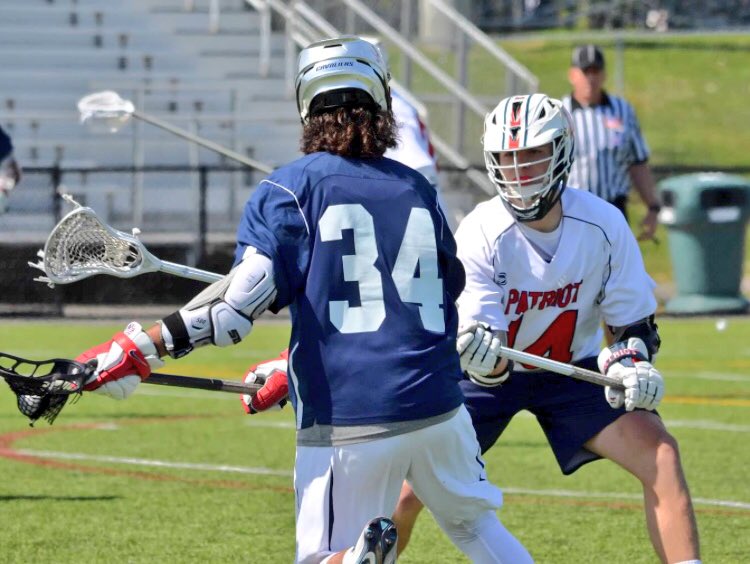
/cdn.vox-cdn.com/uploads/chorus_image/image/62222067/Yale_Duke_Dewkett11.0.0.jpeg)



